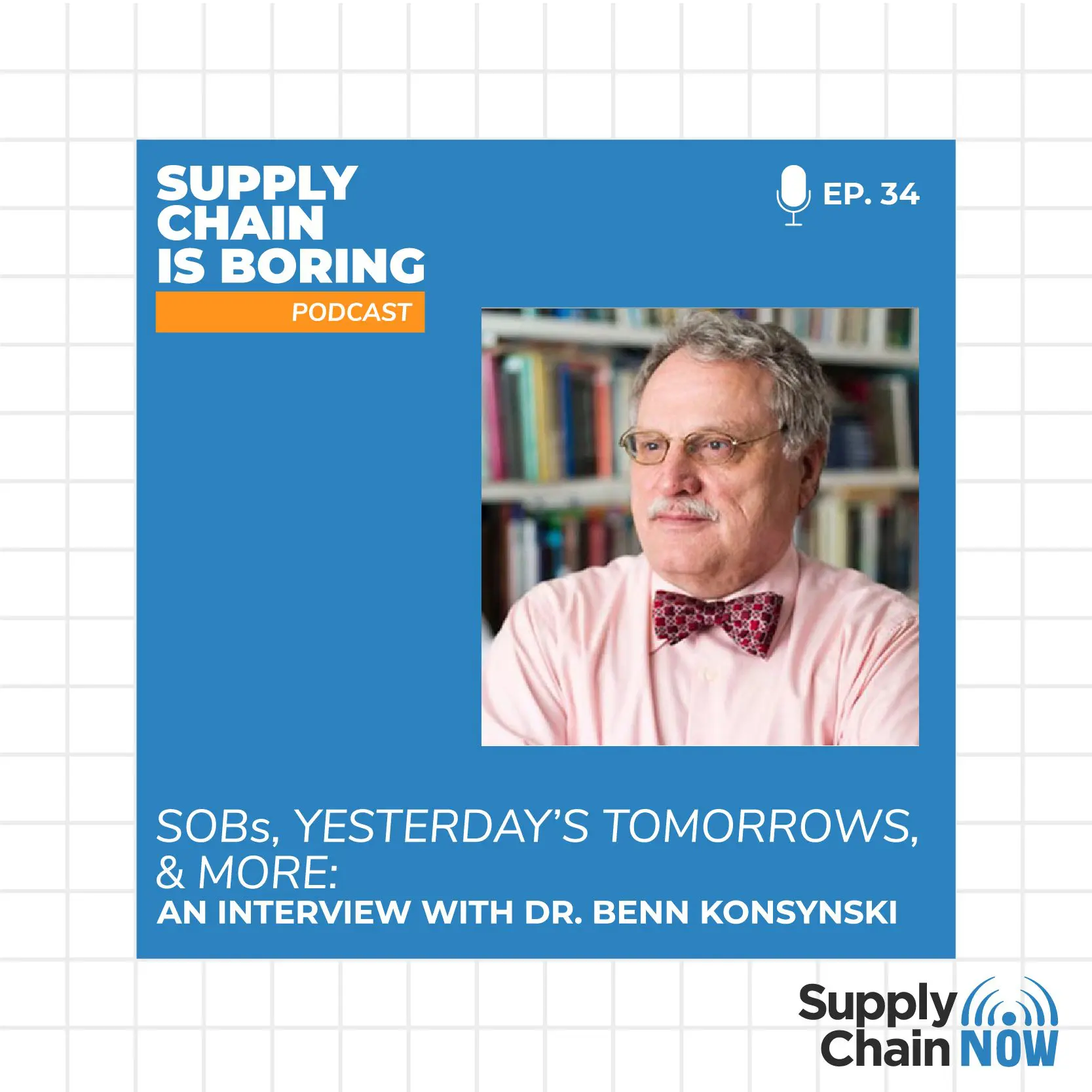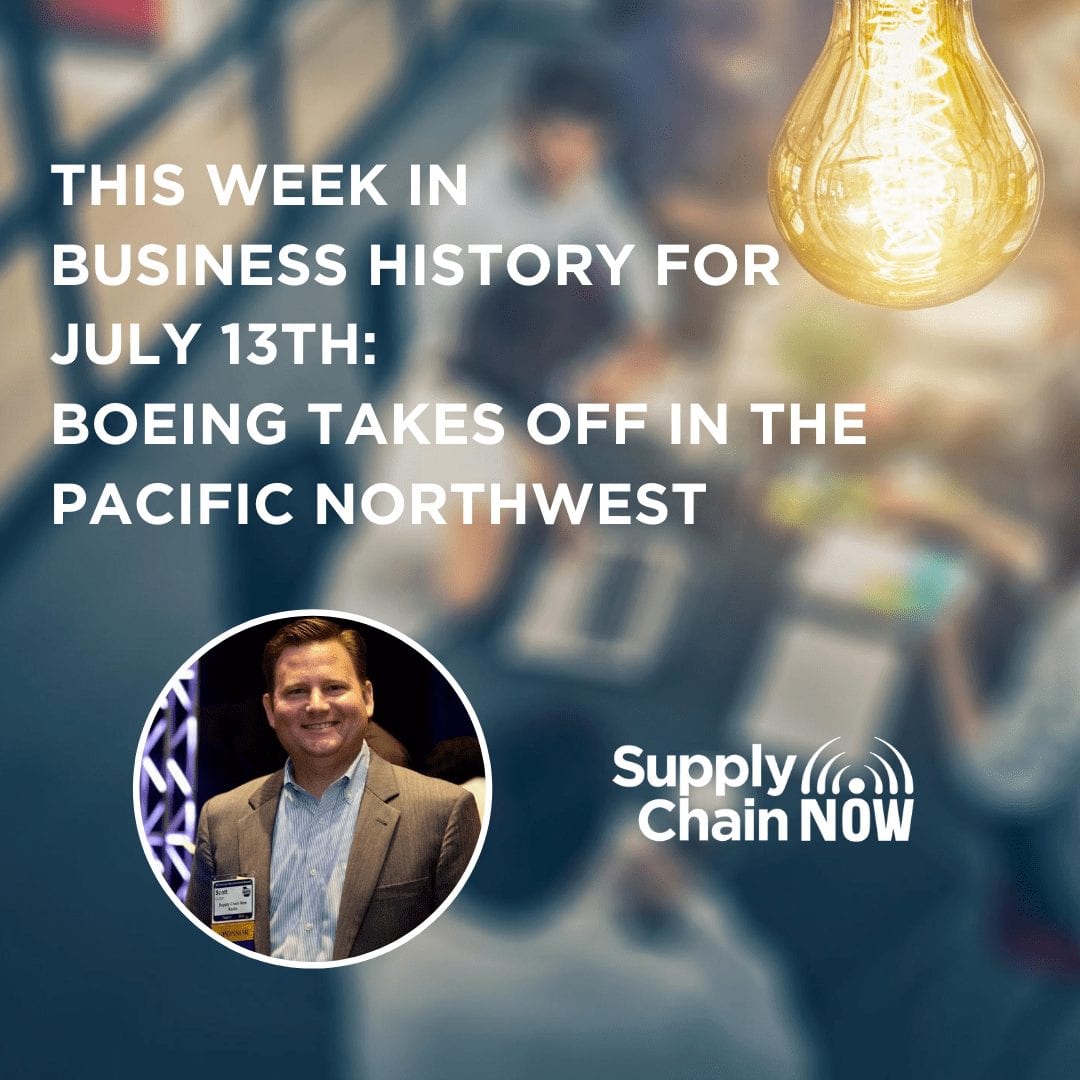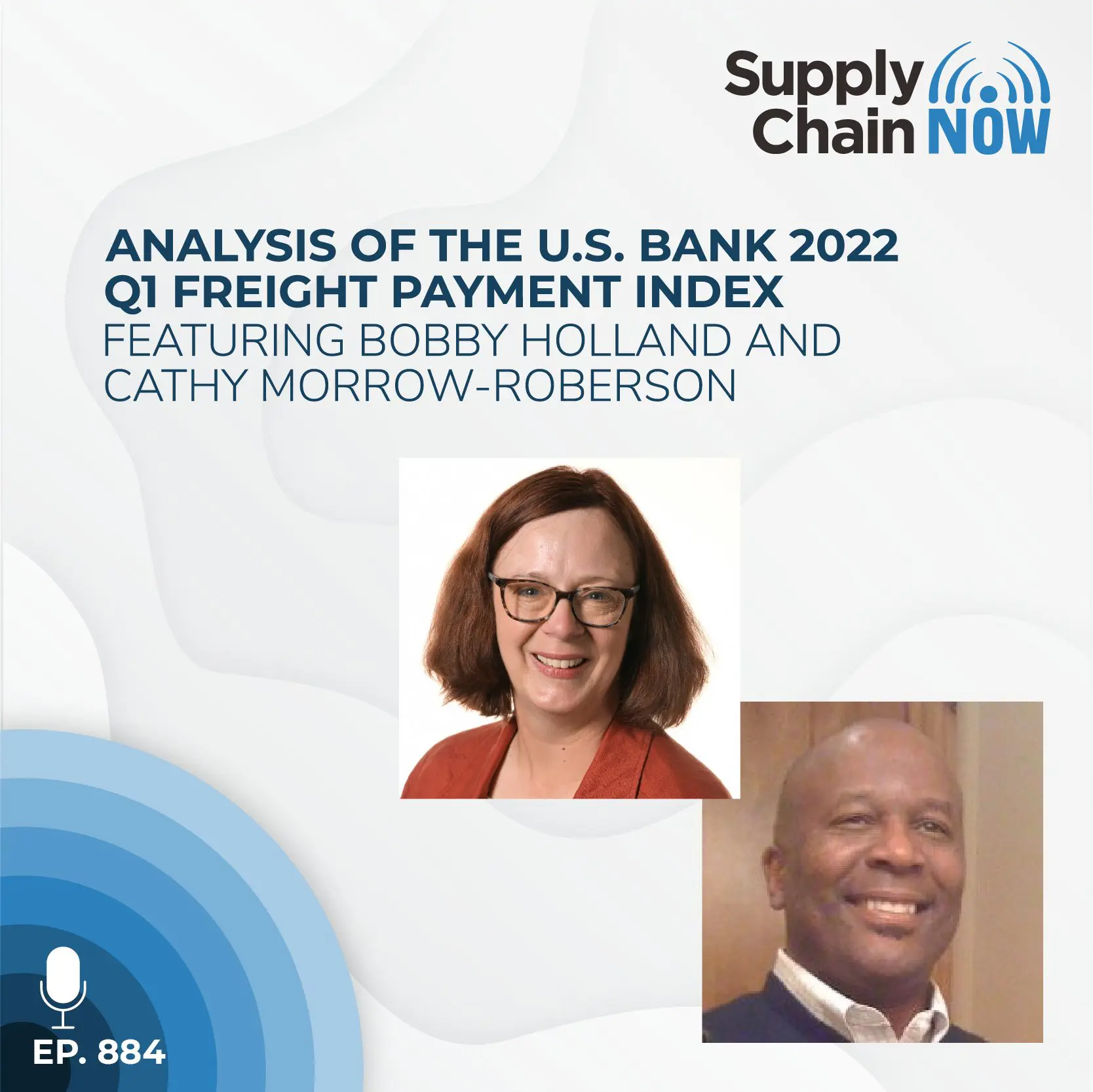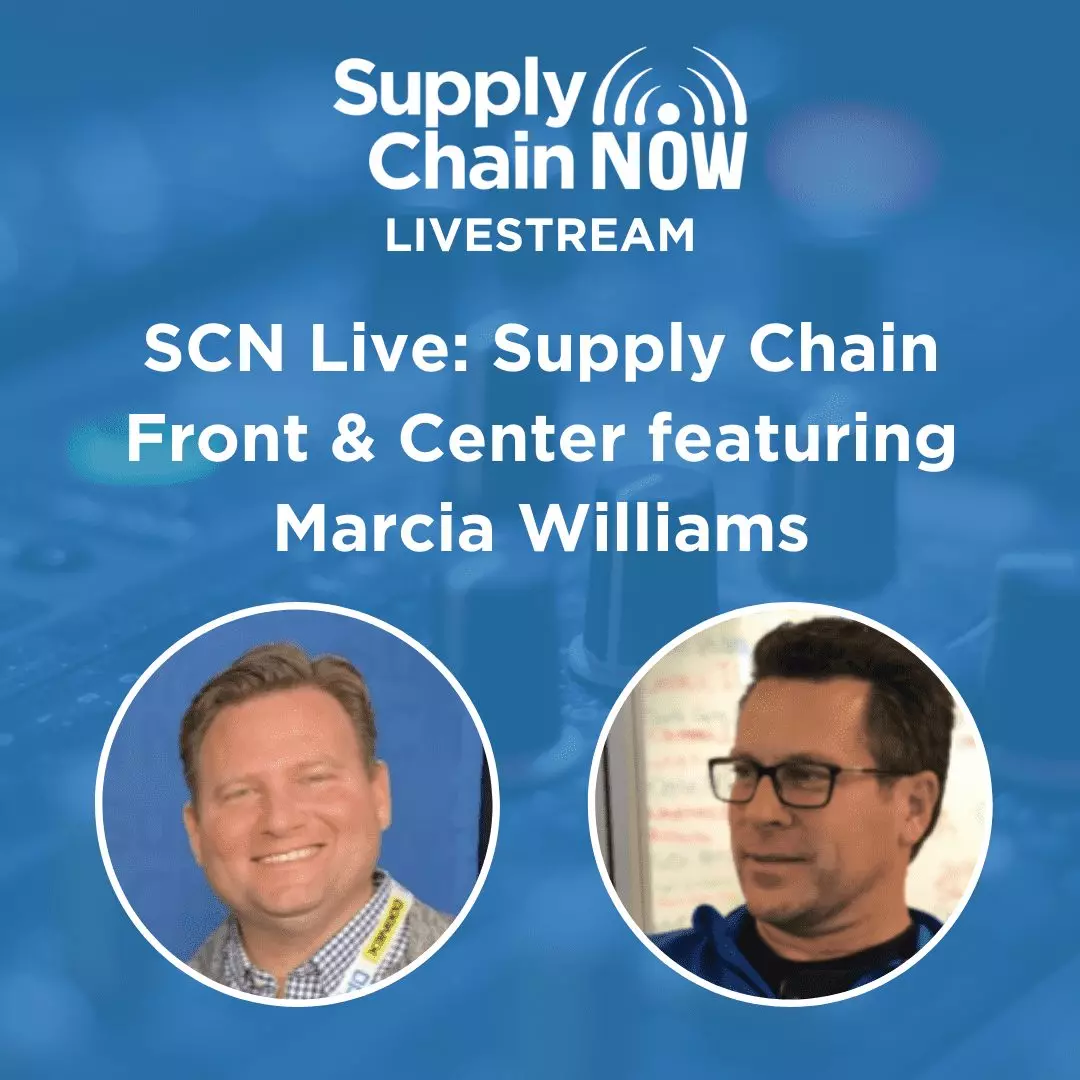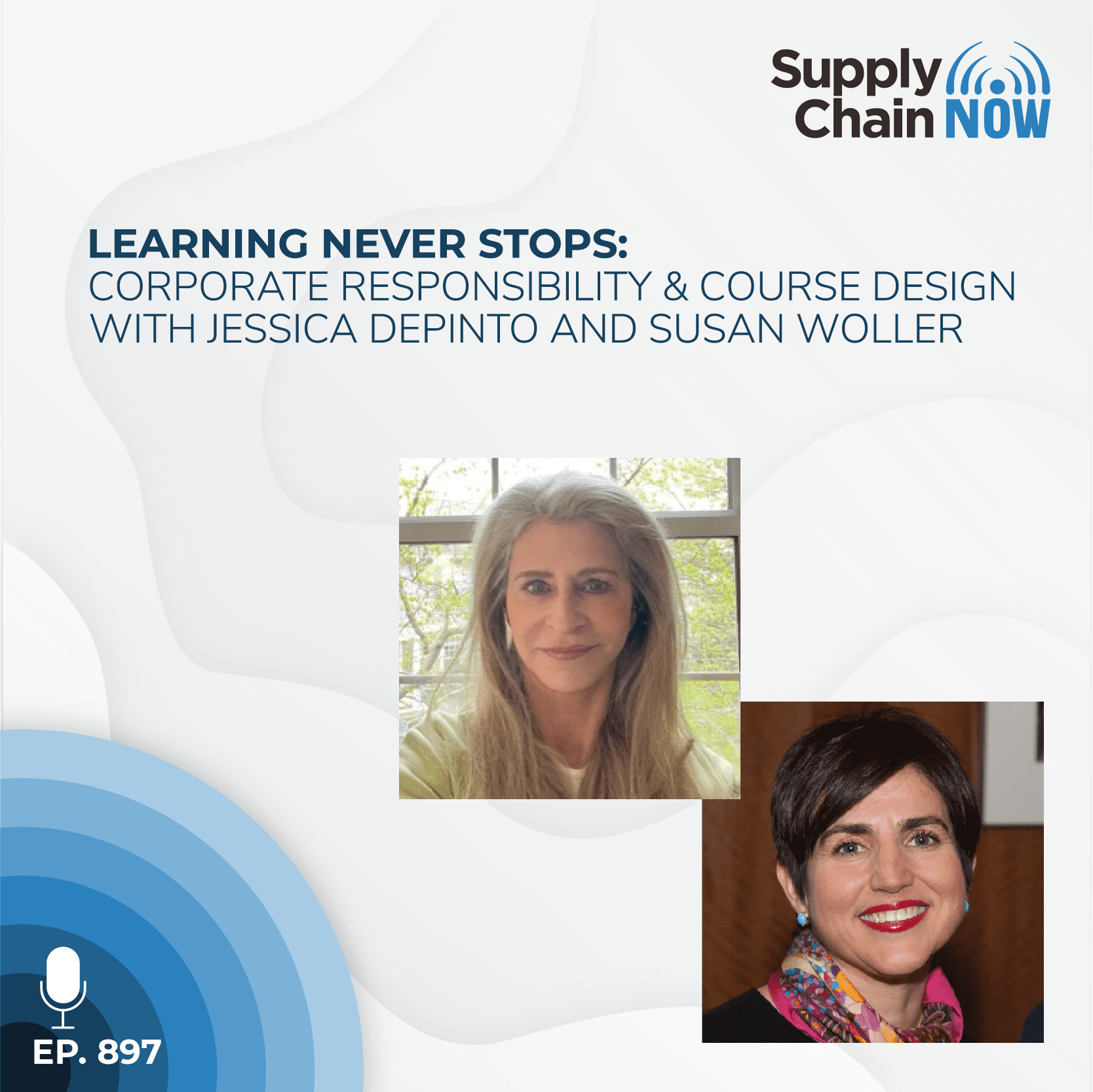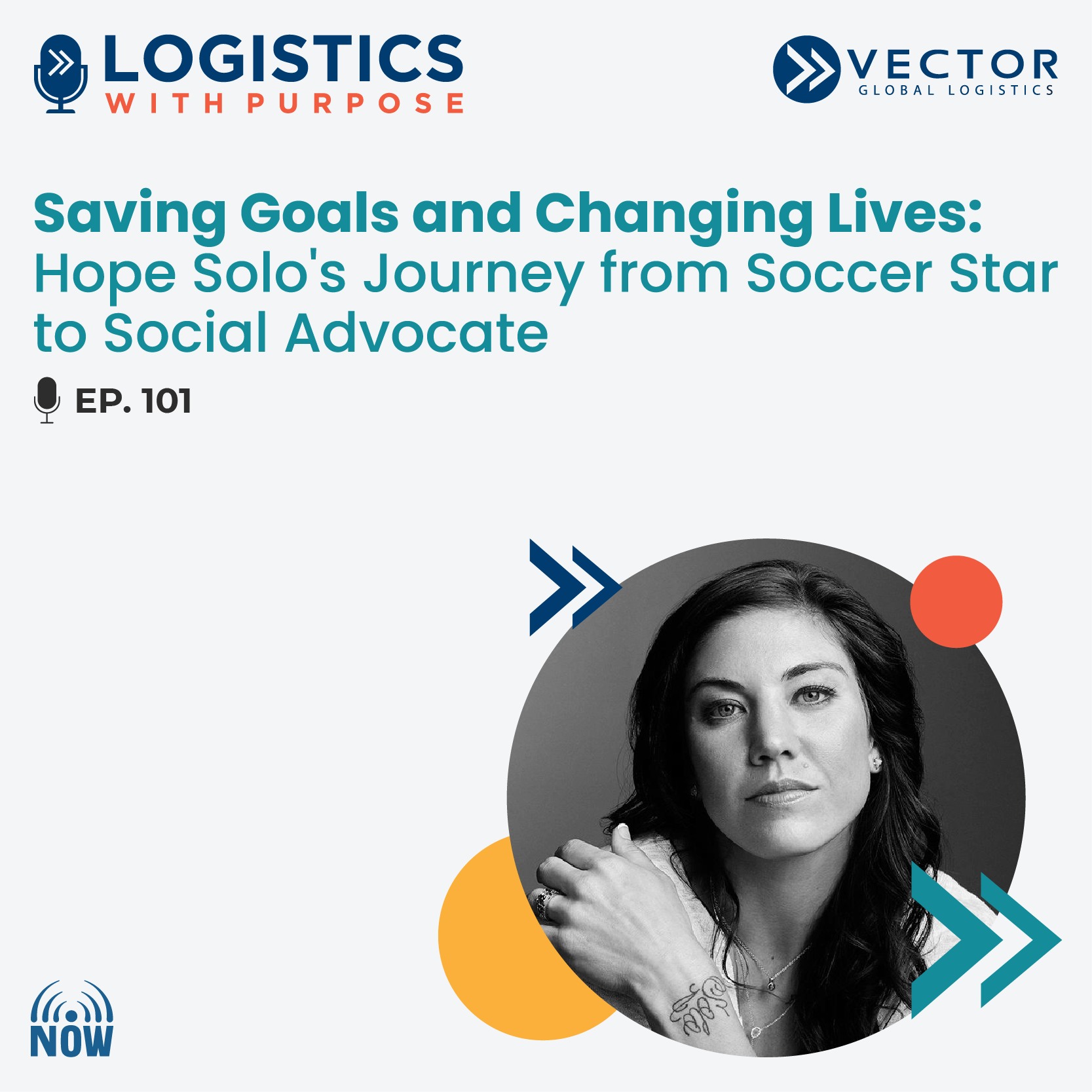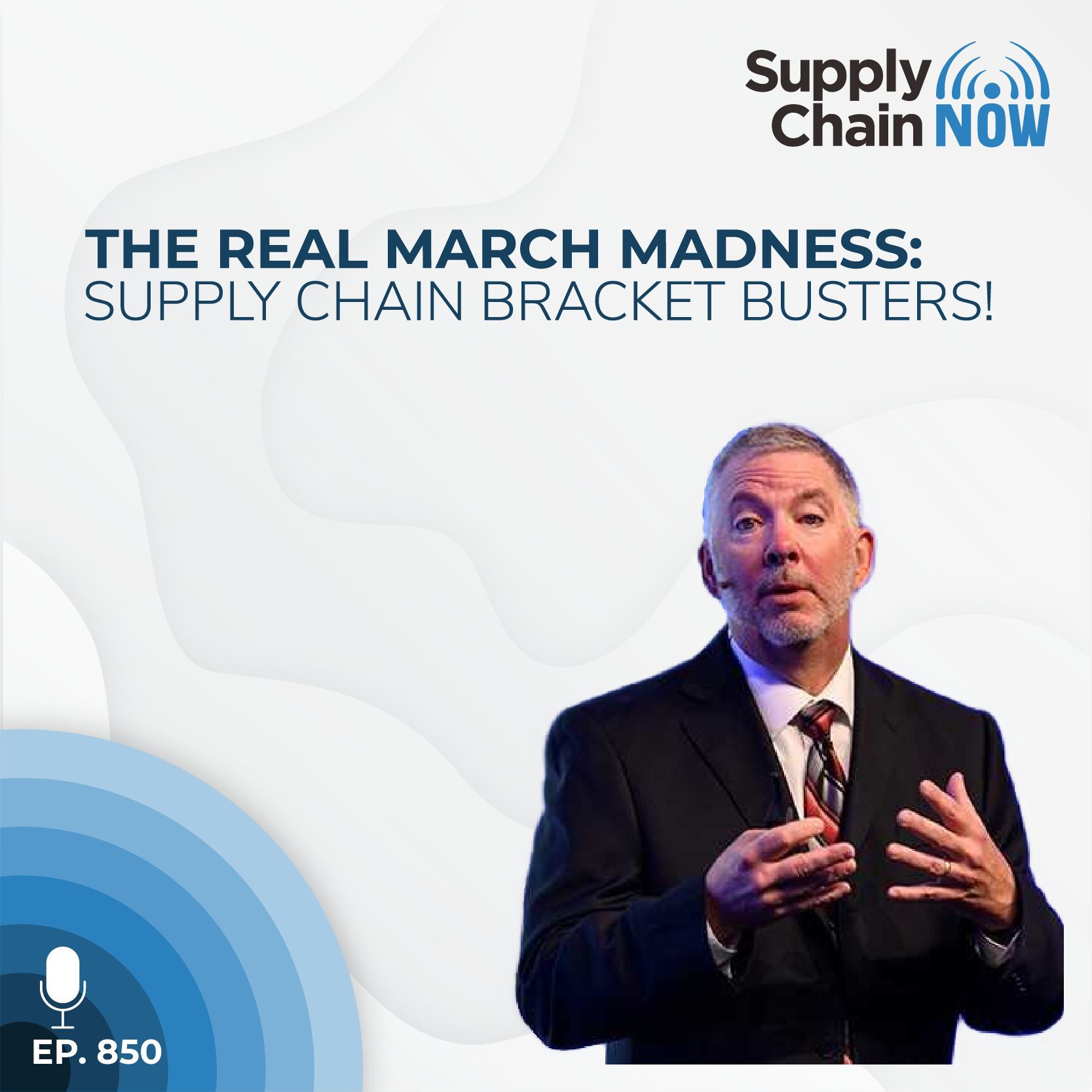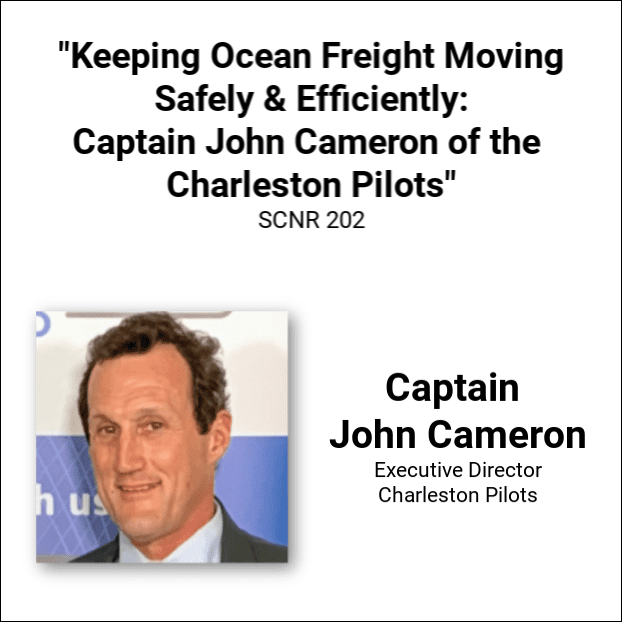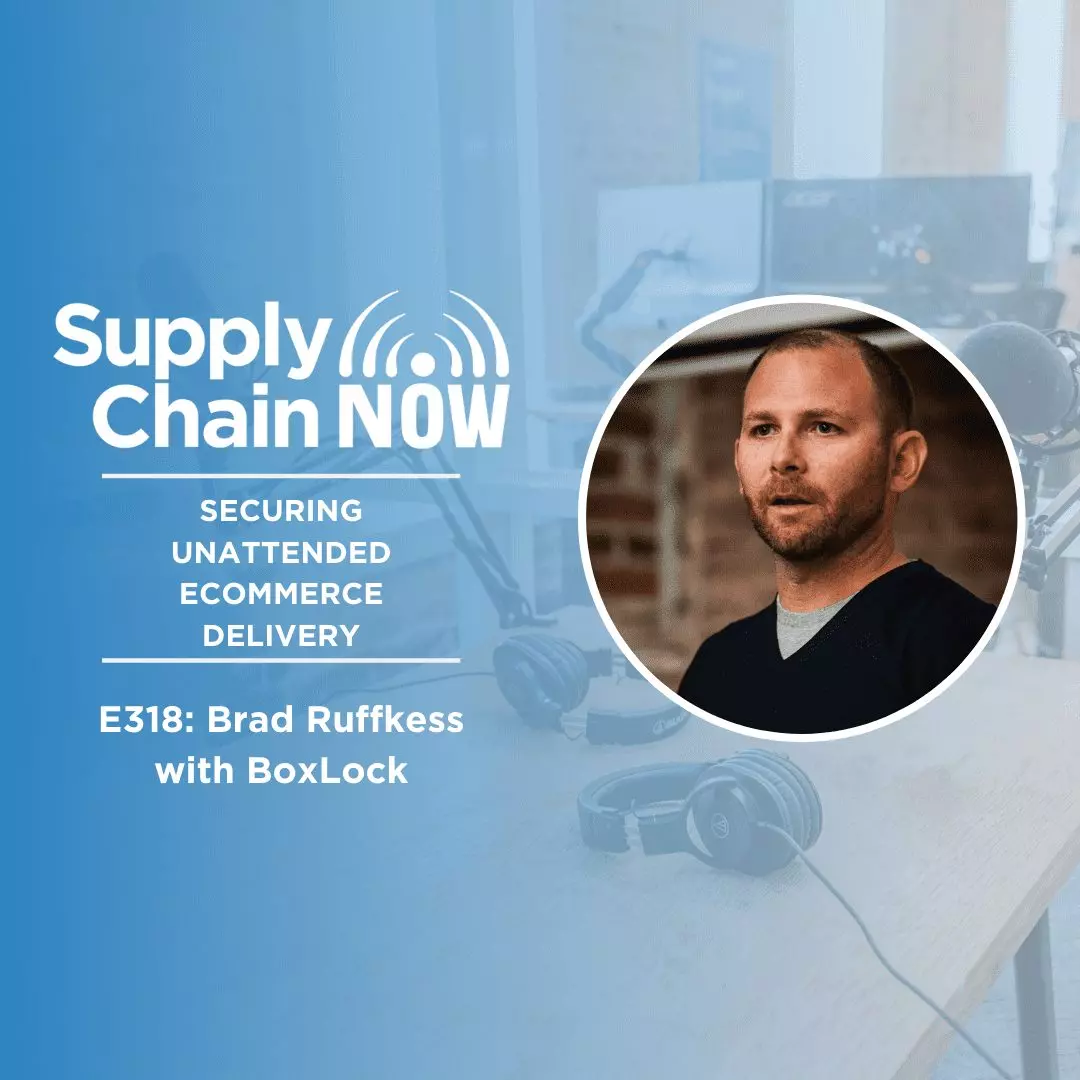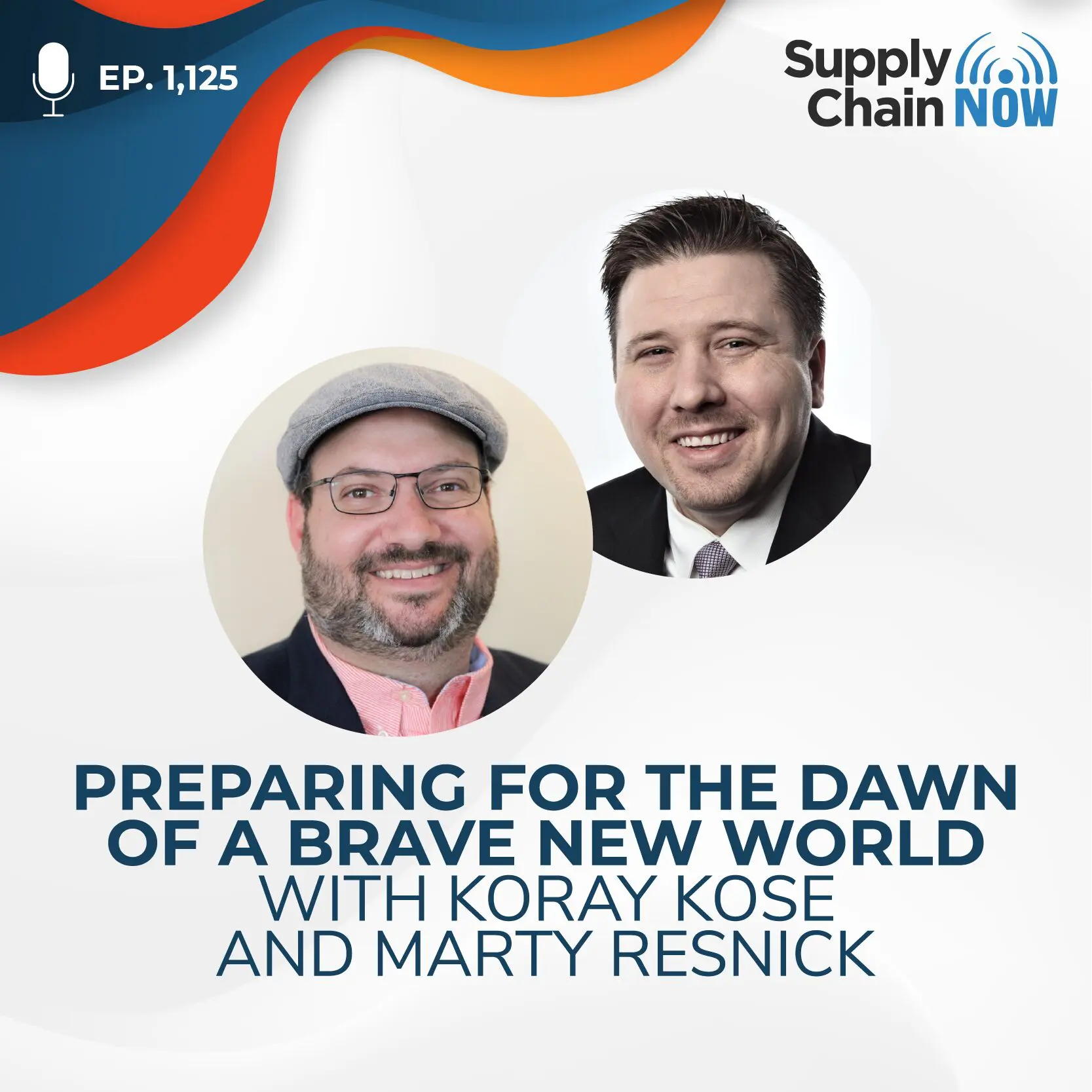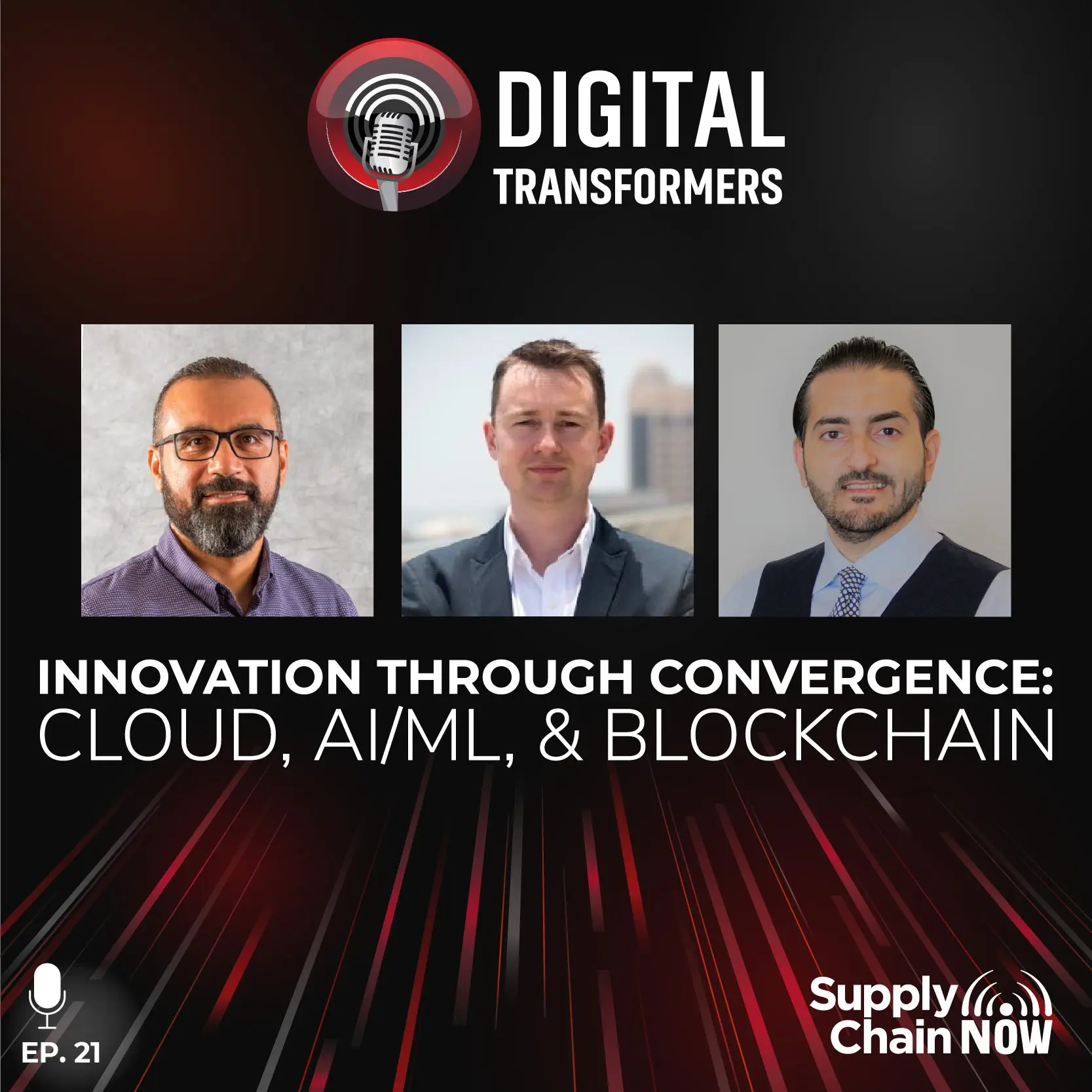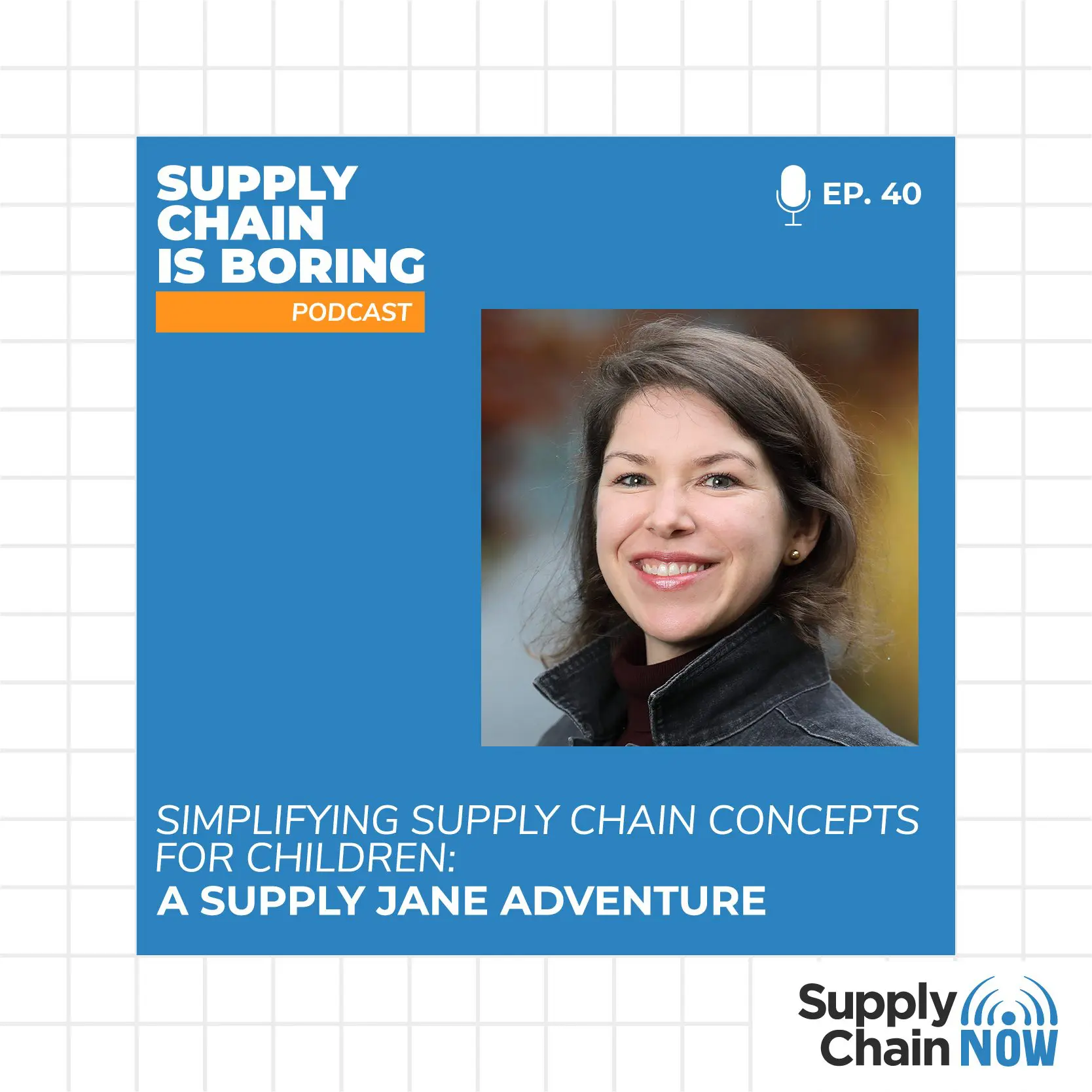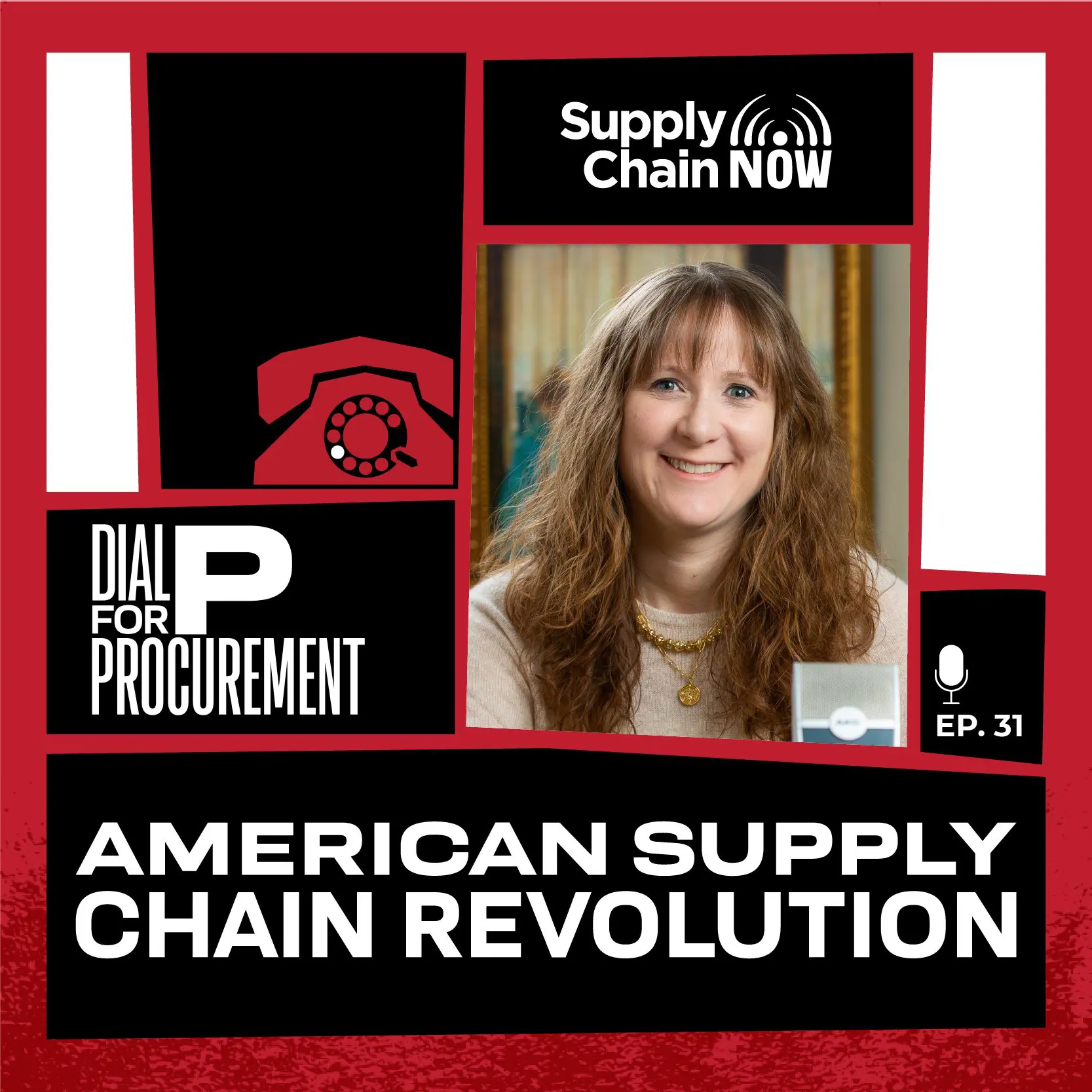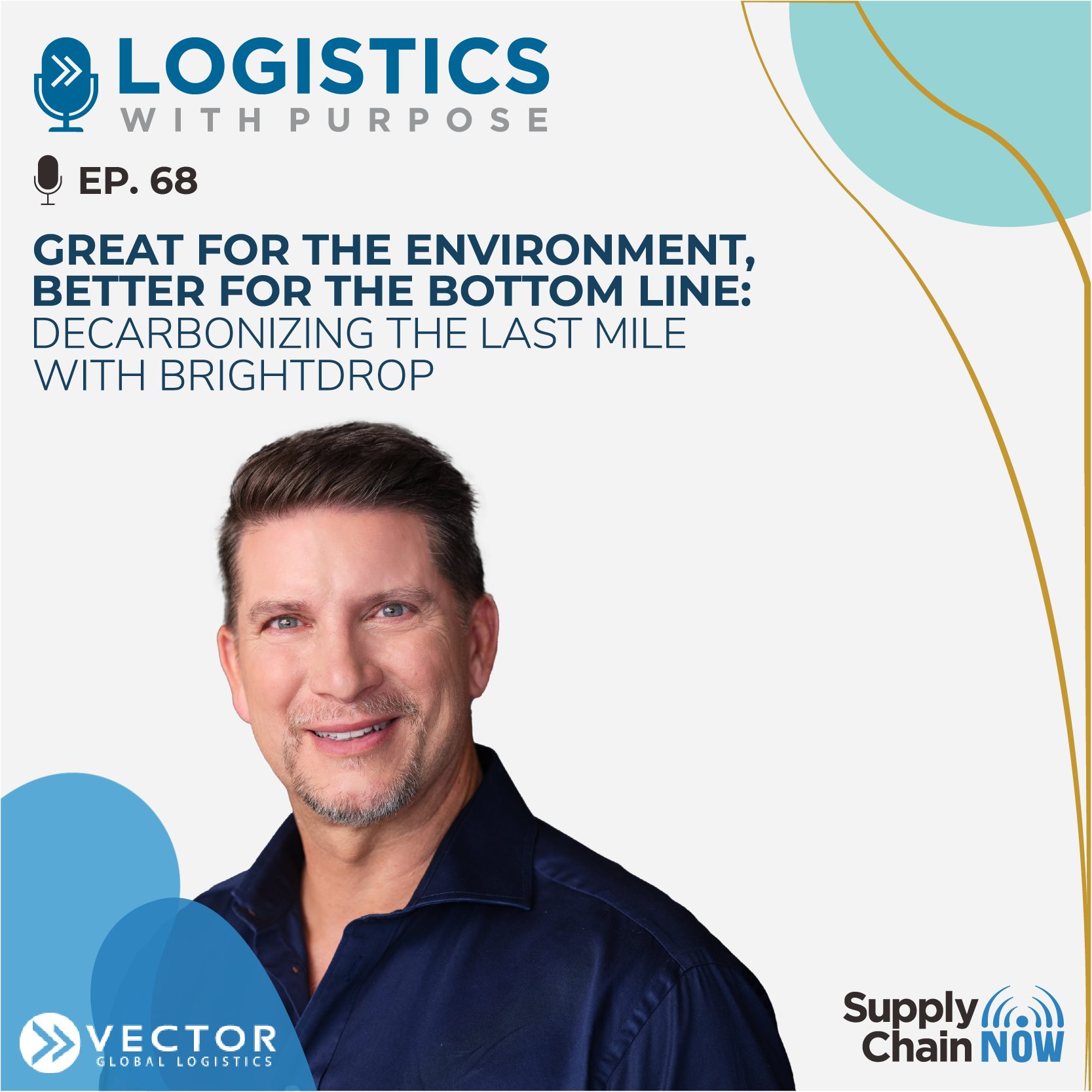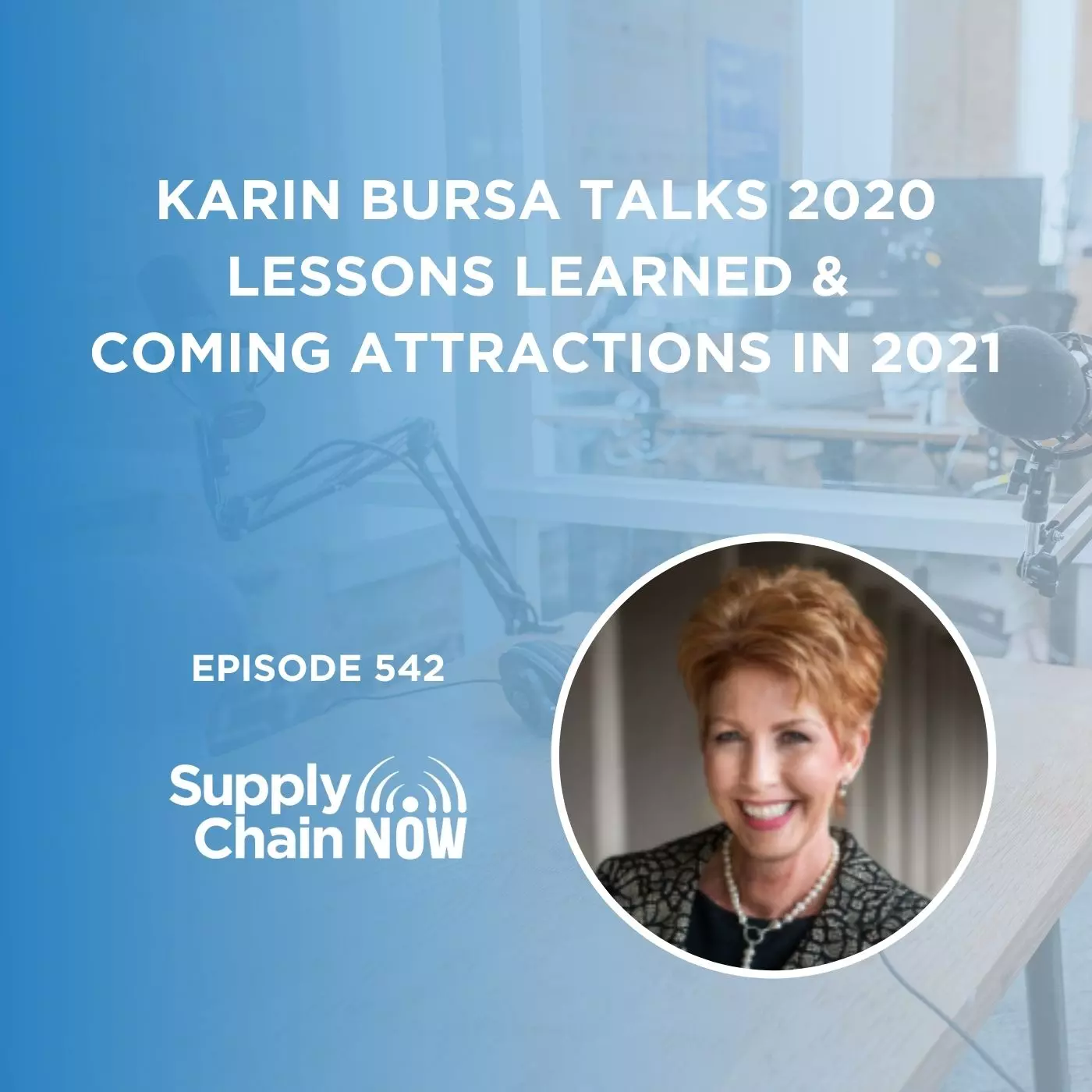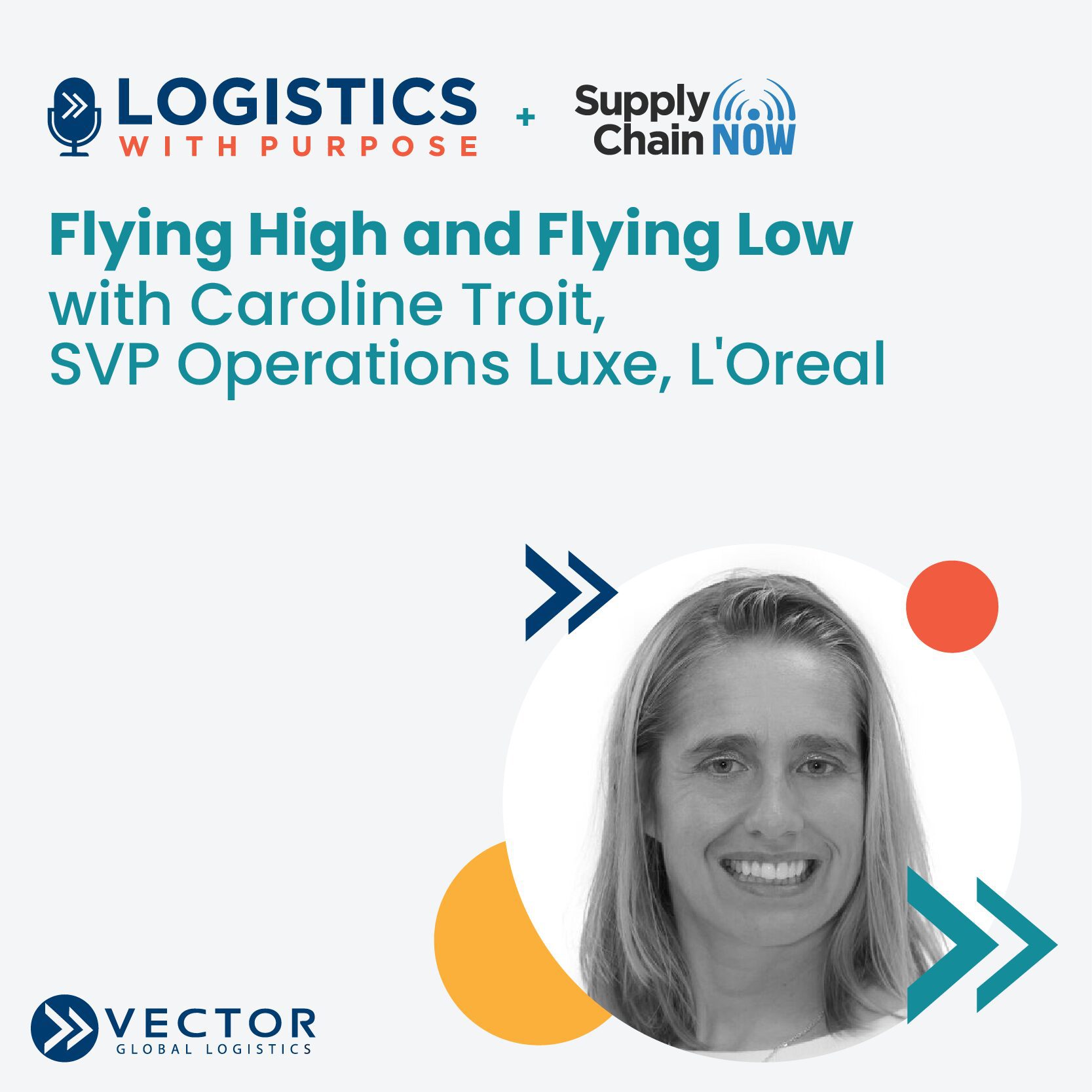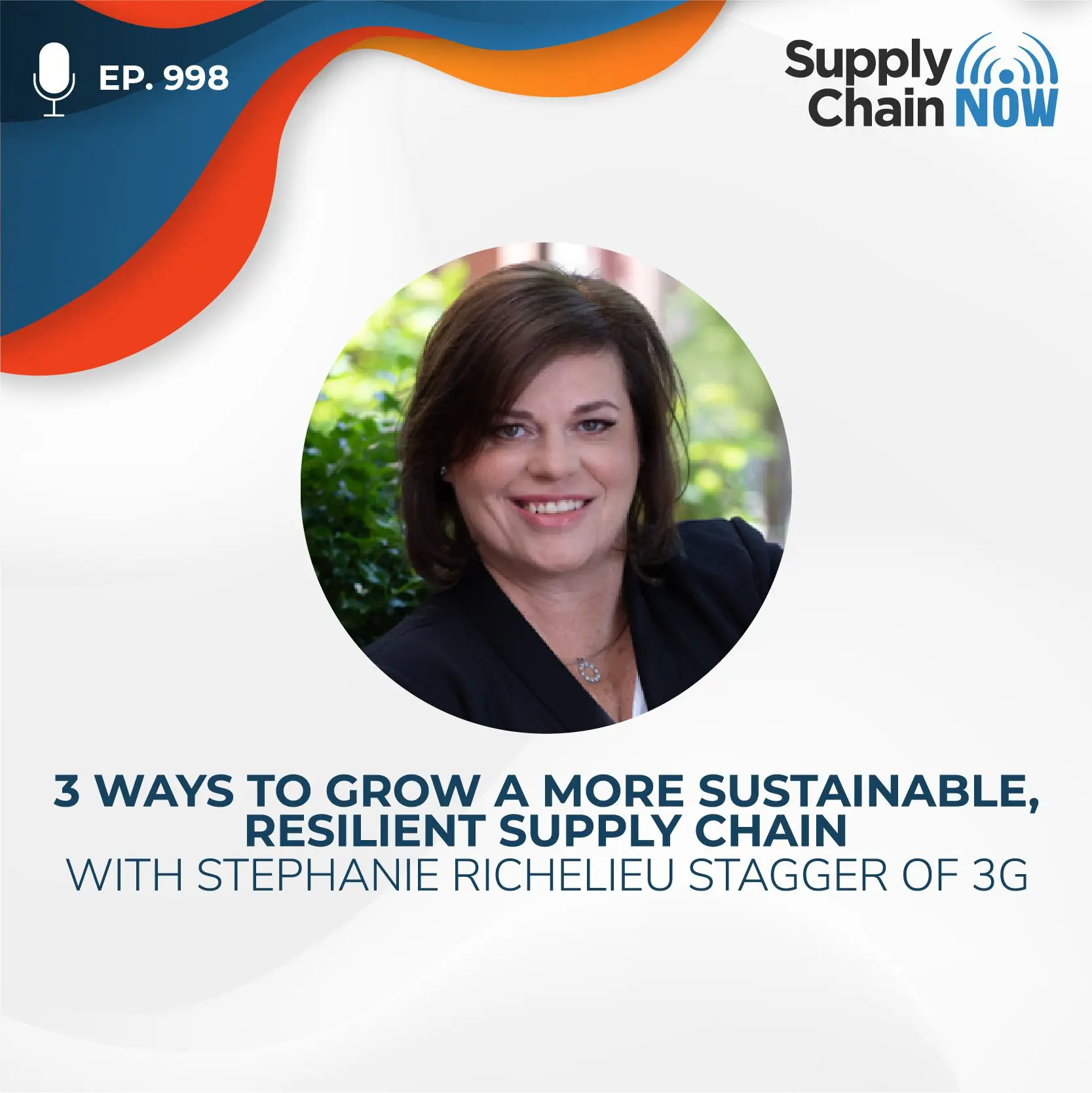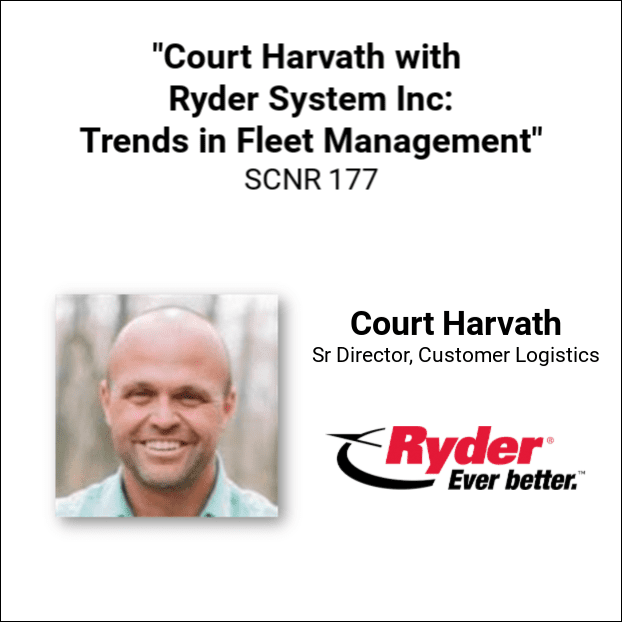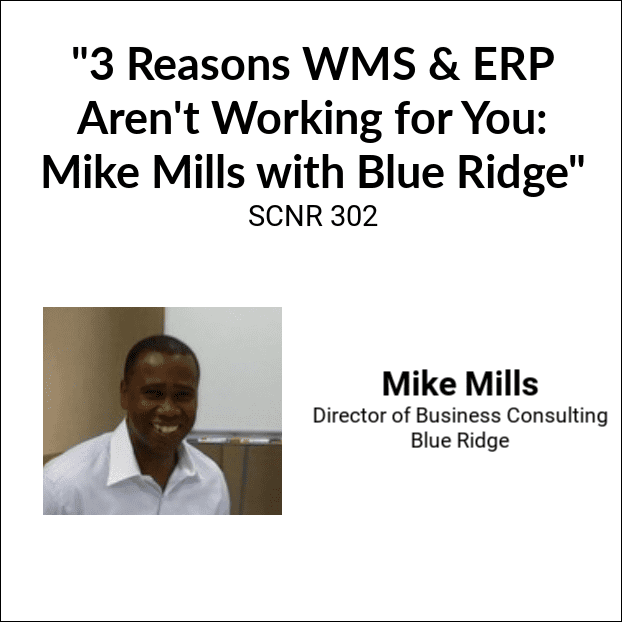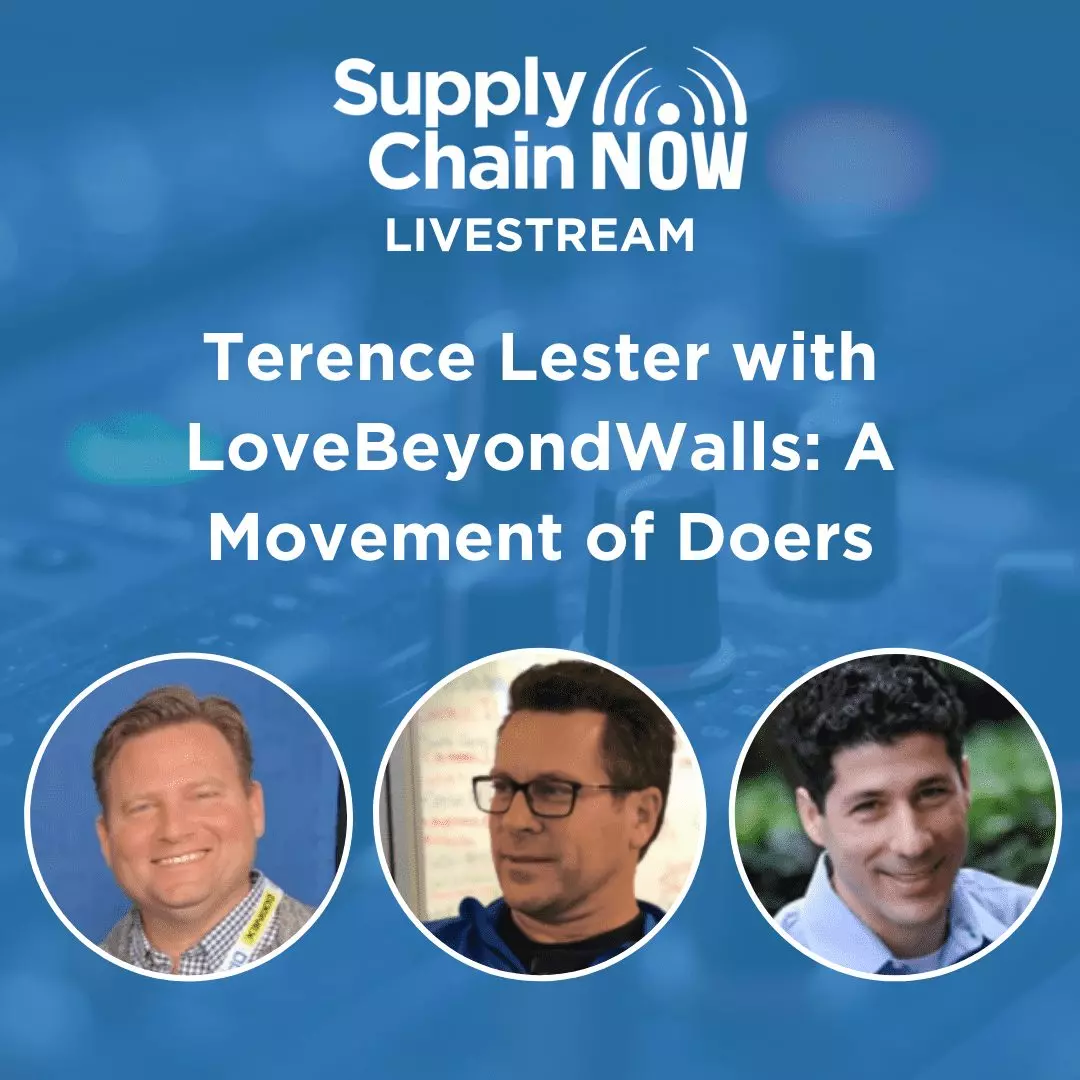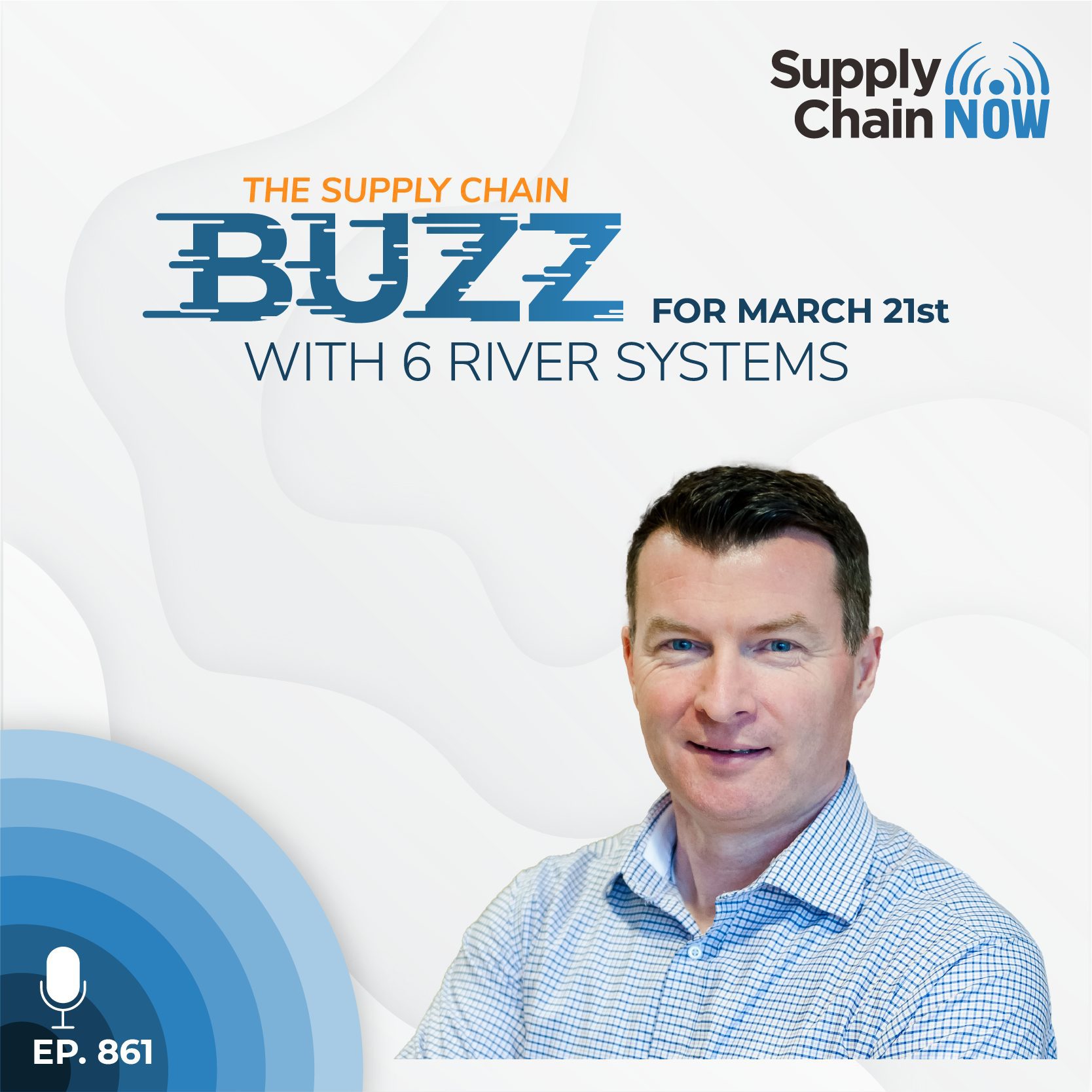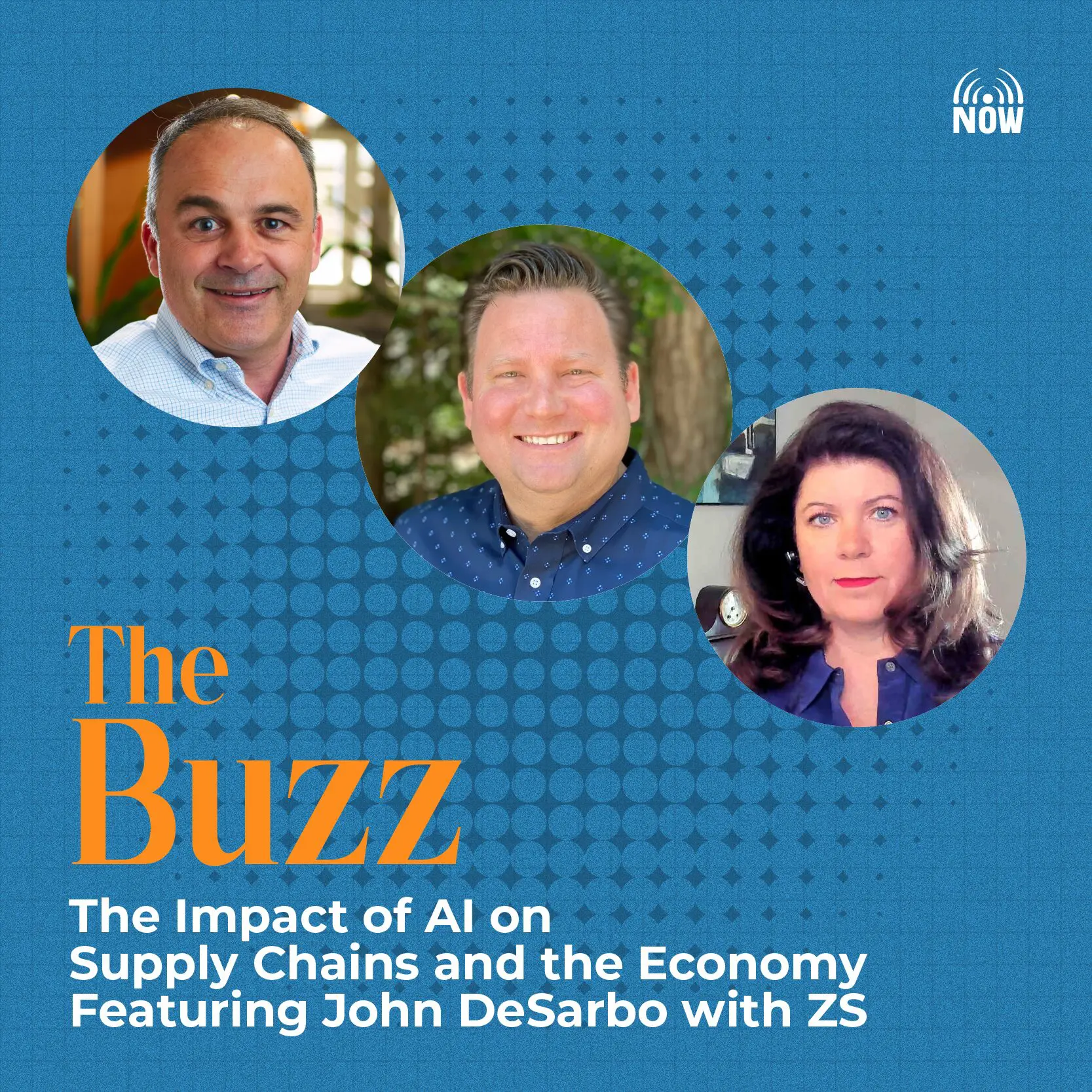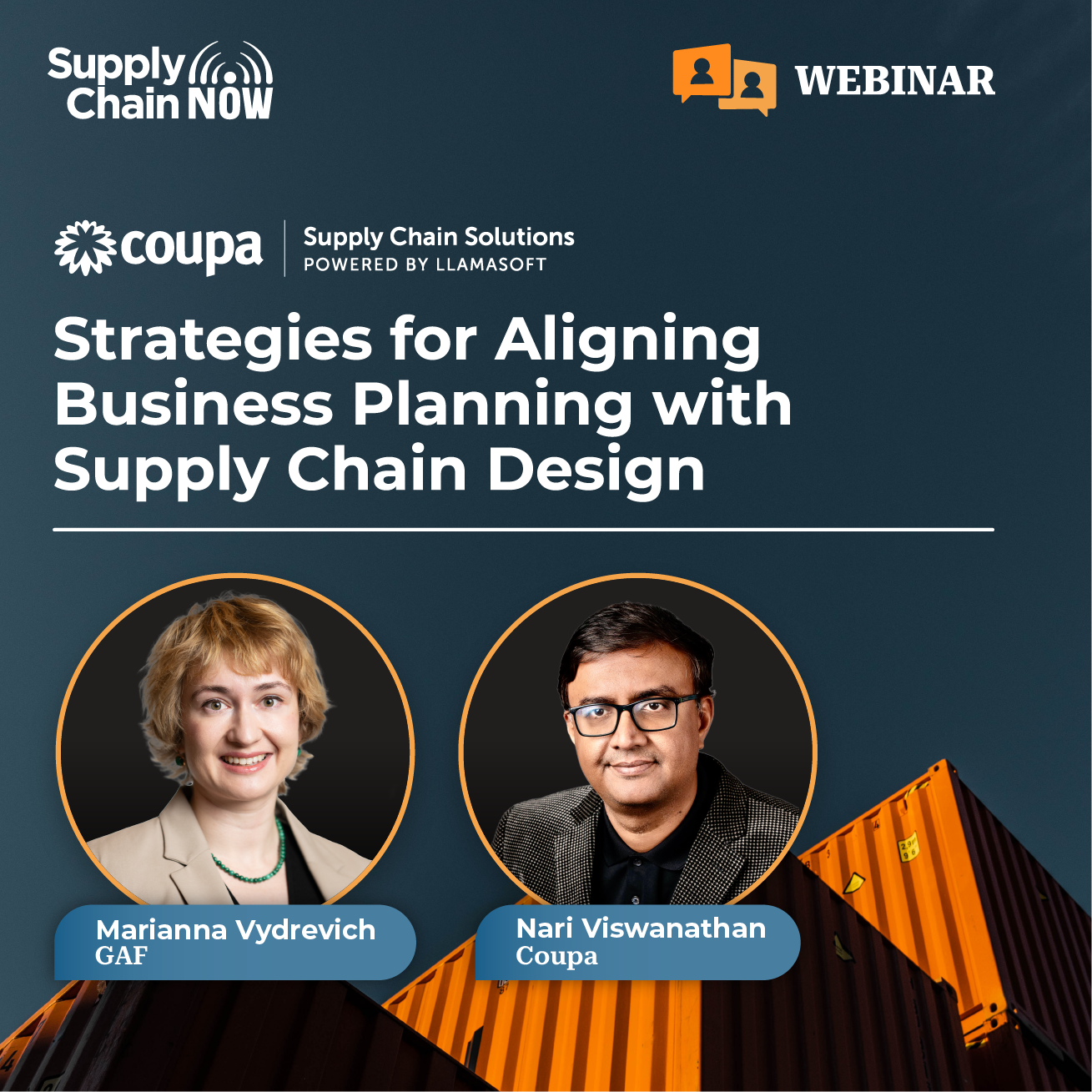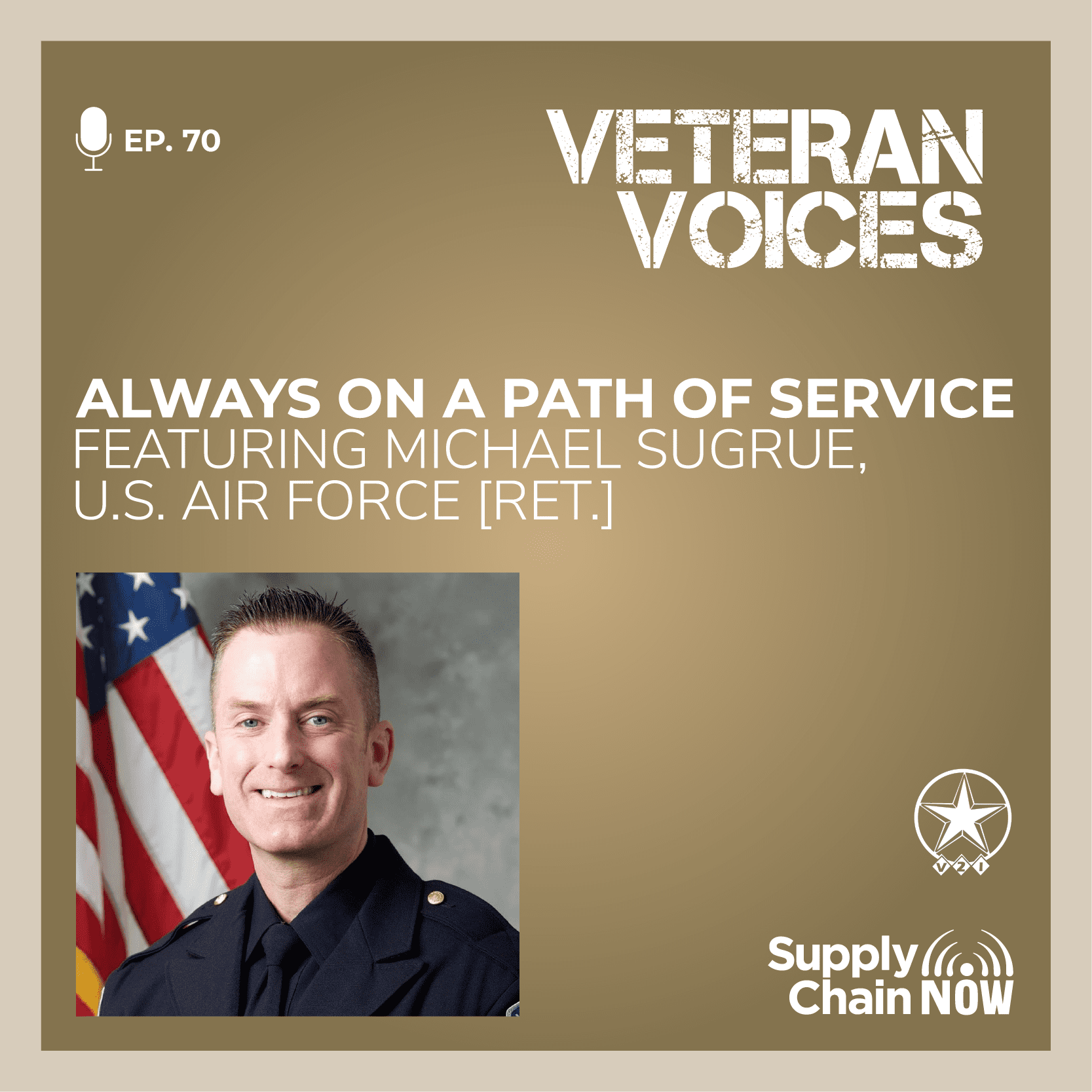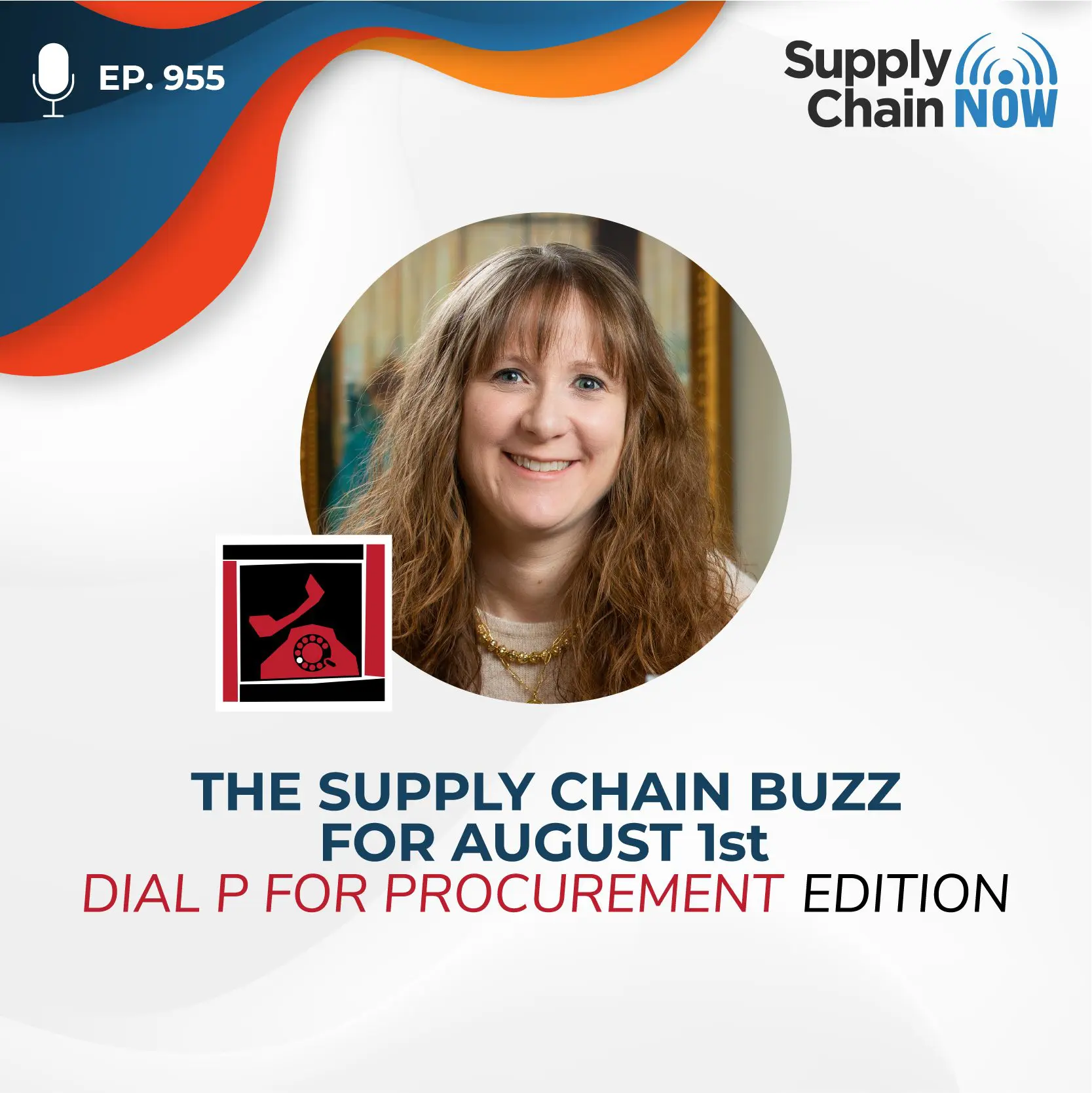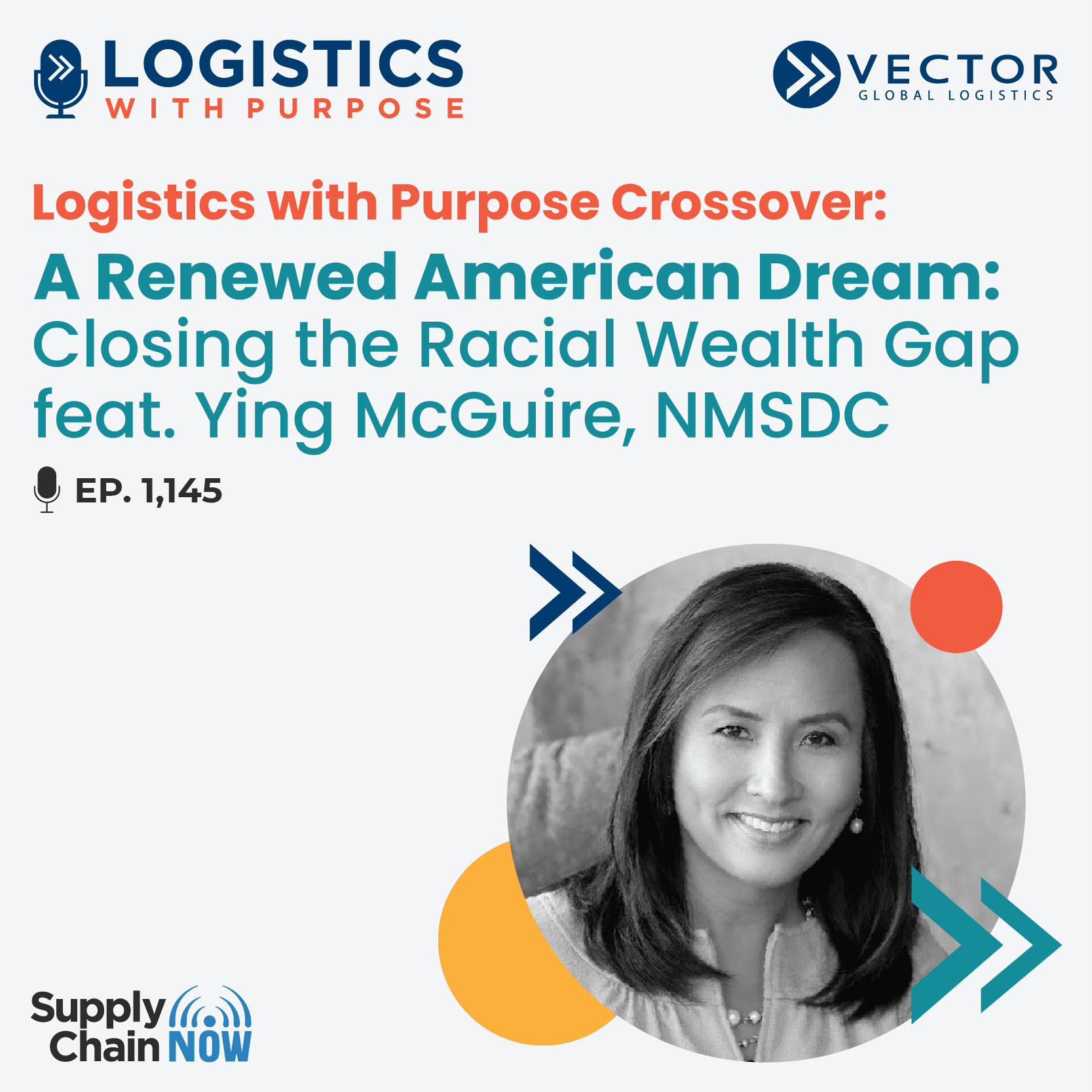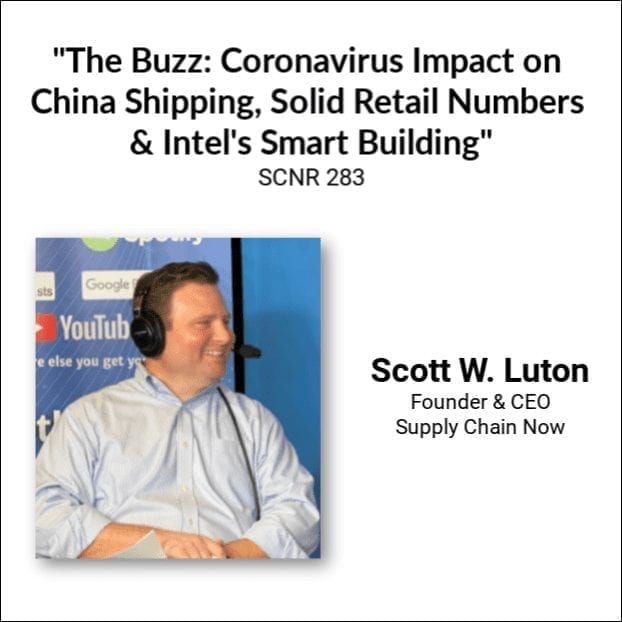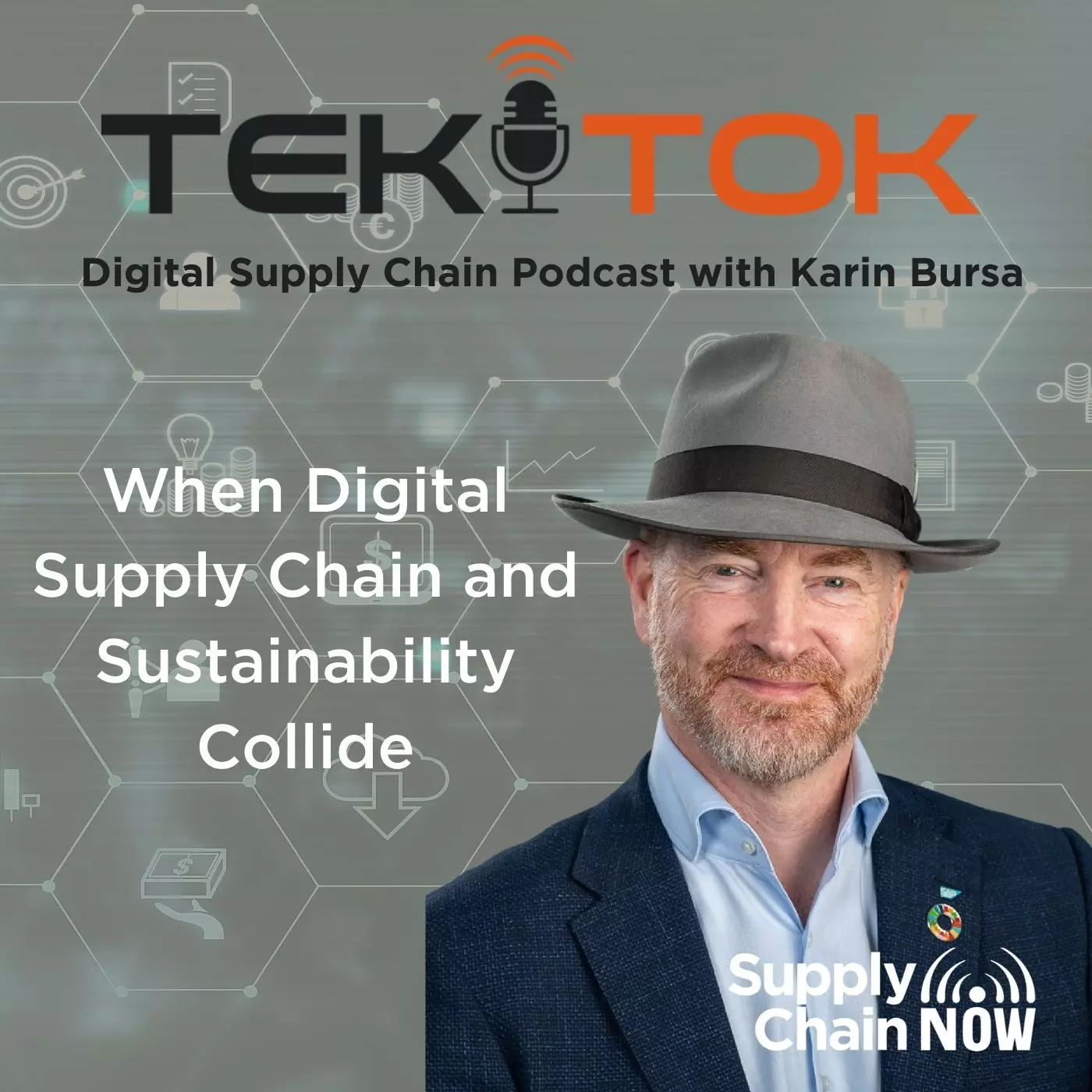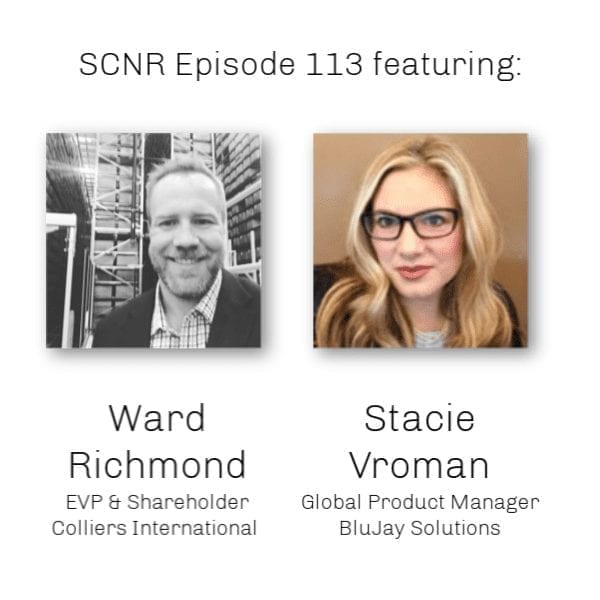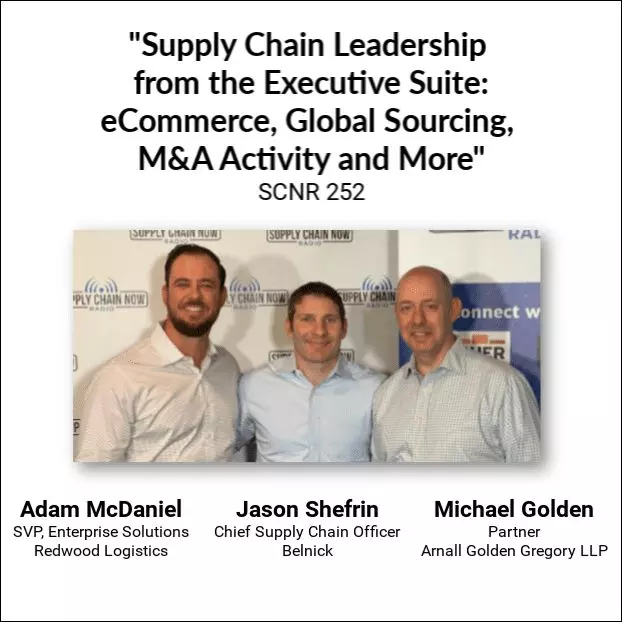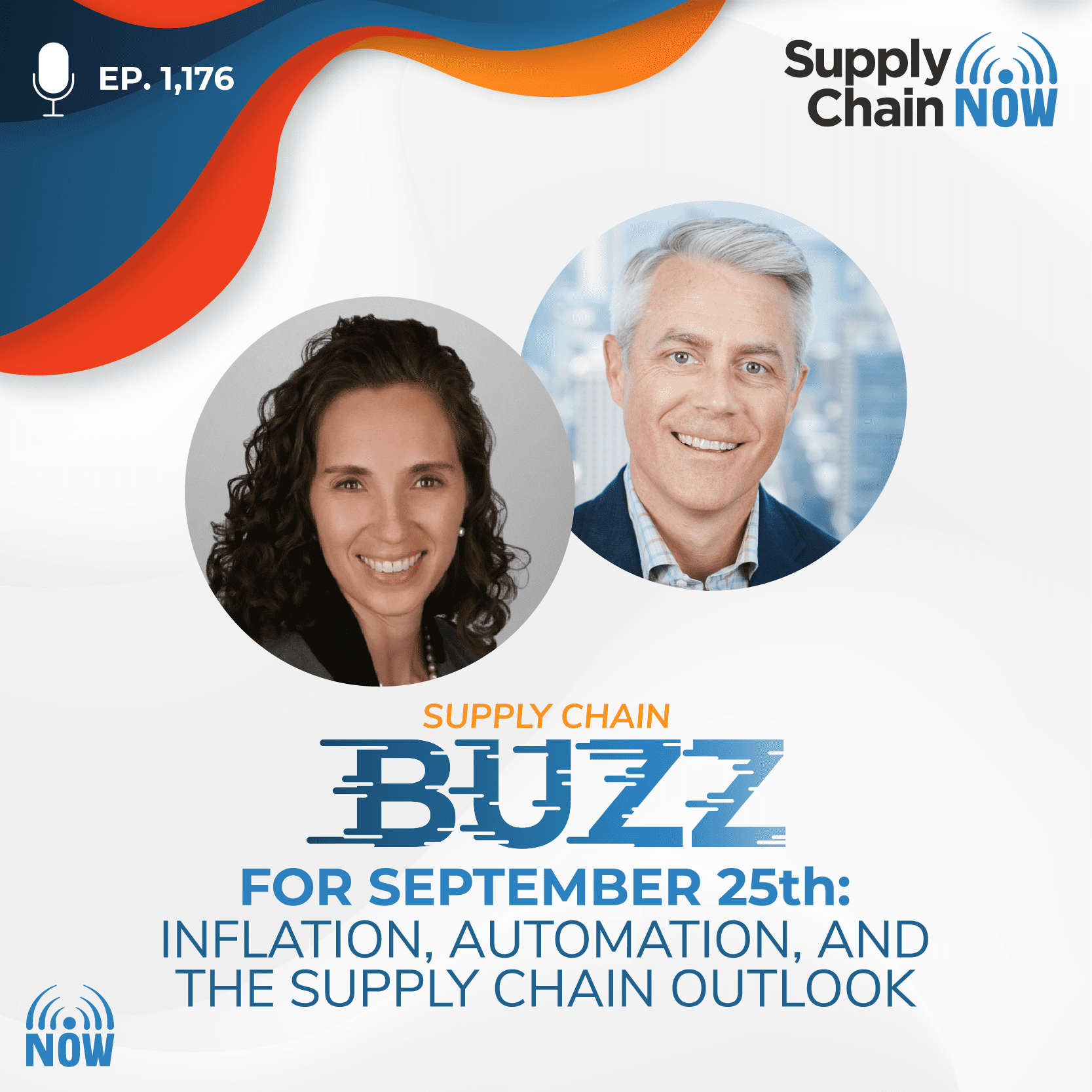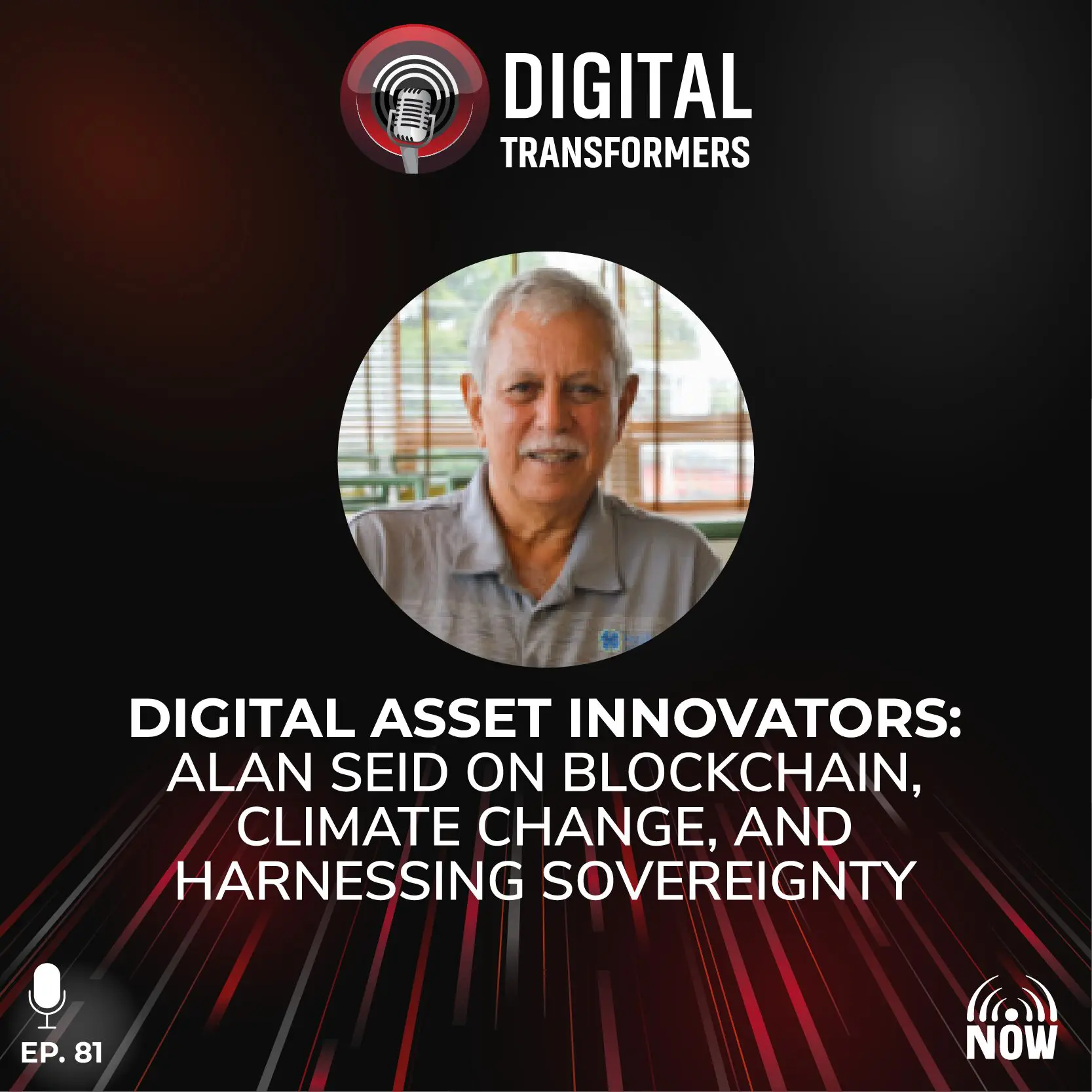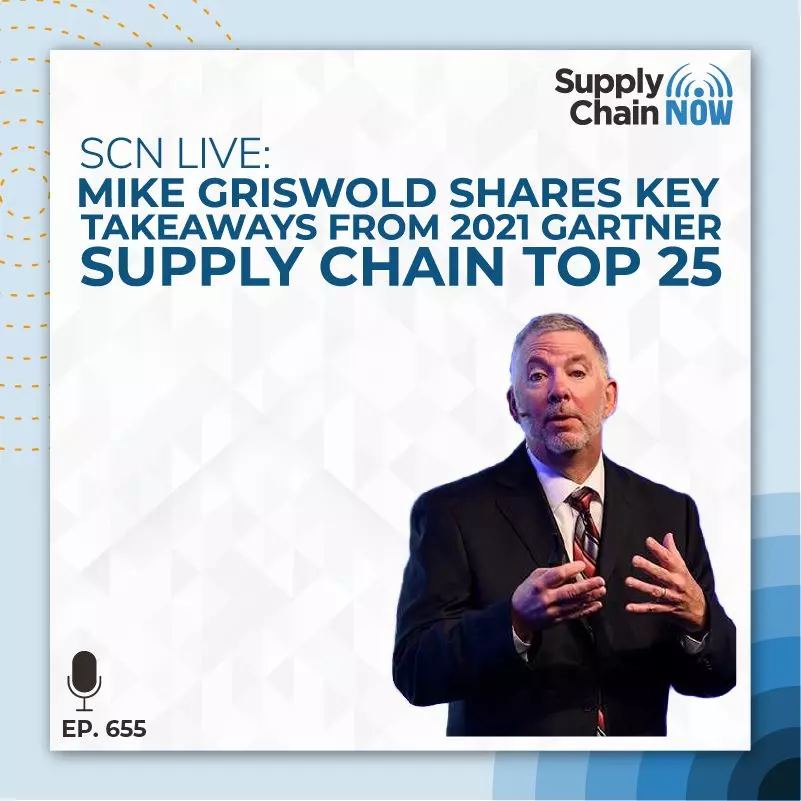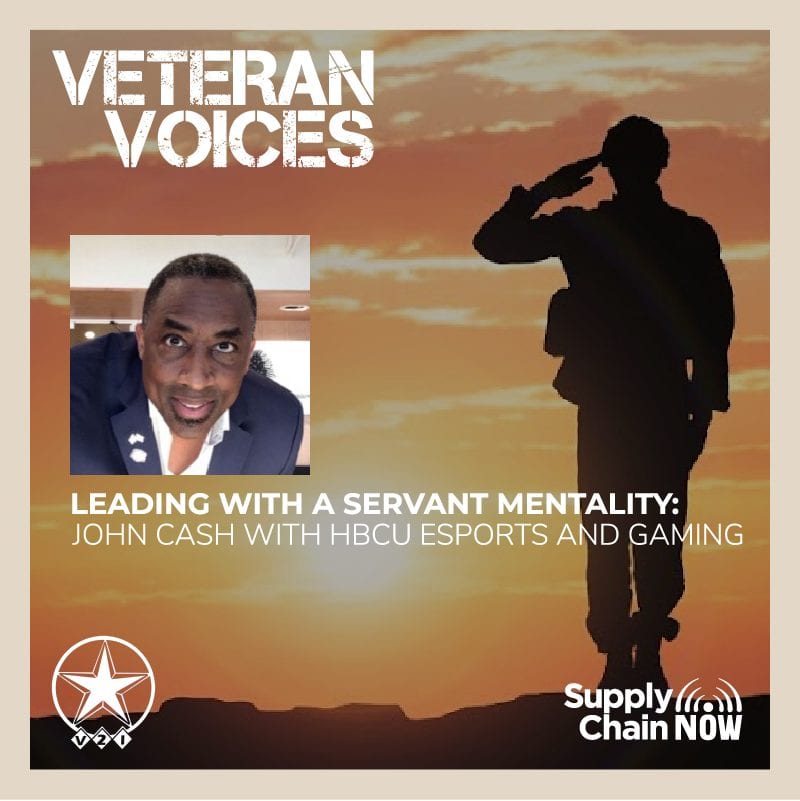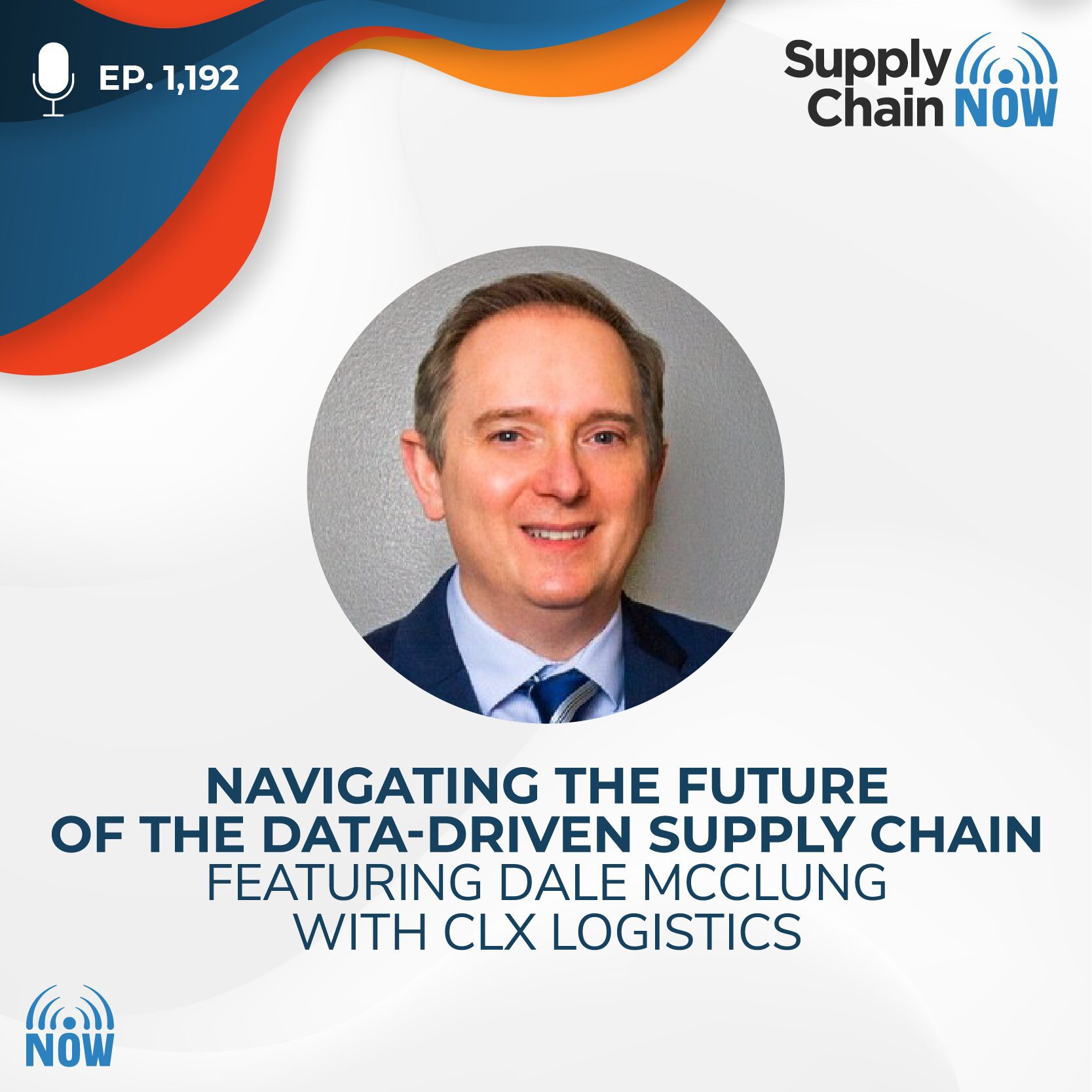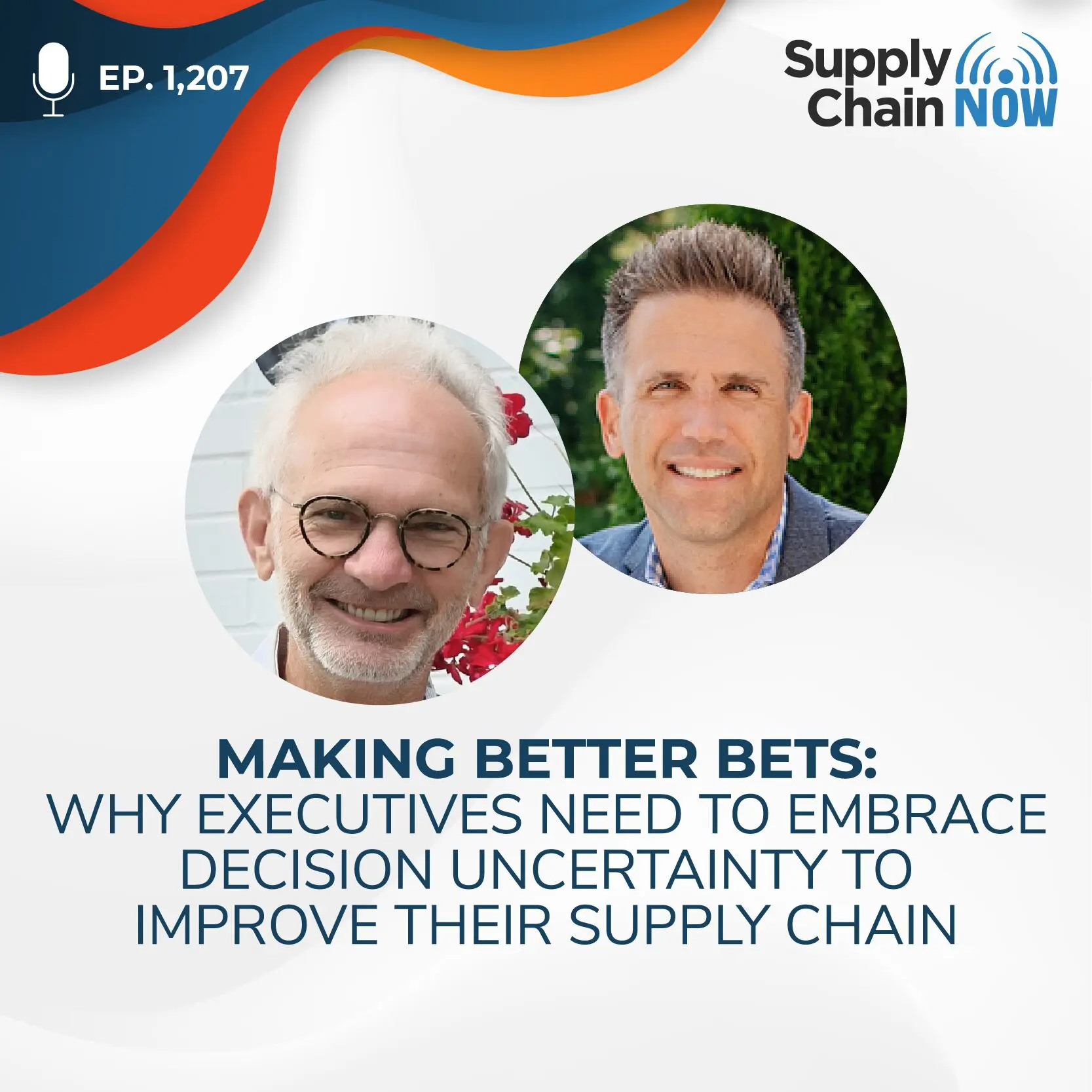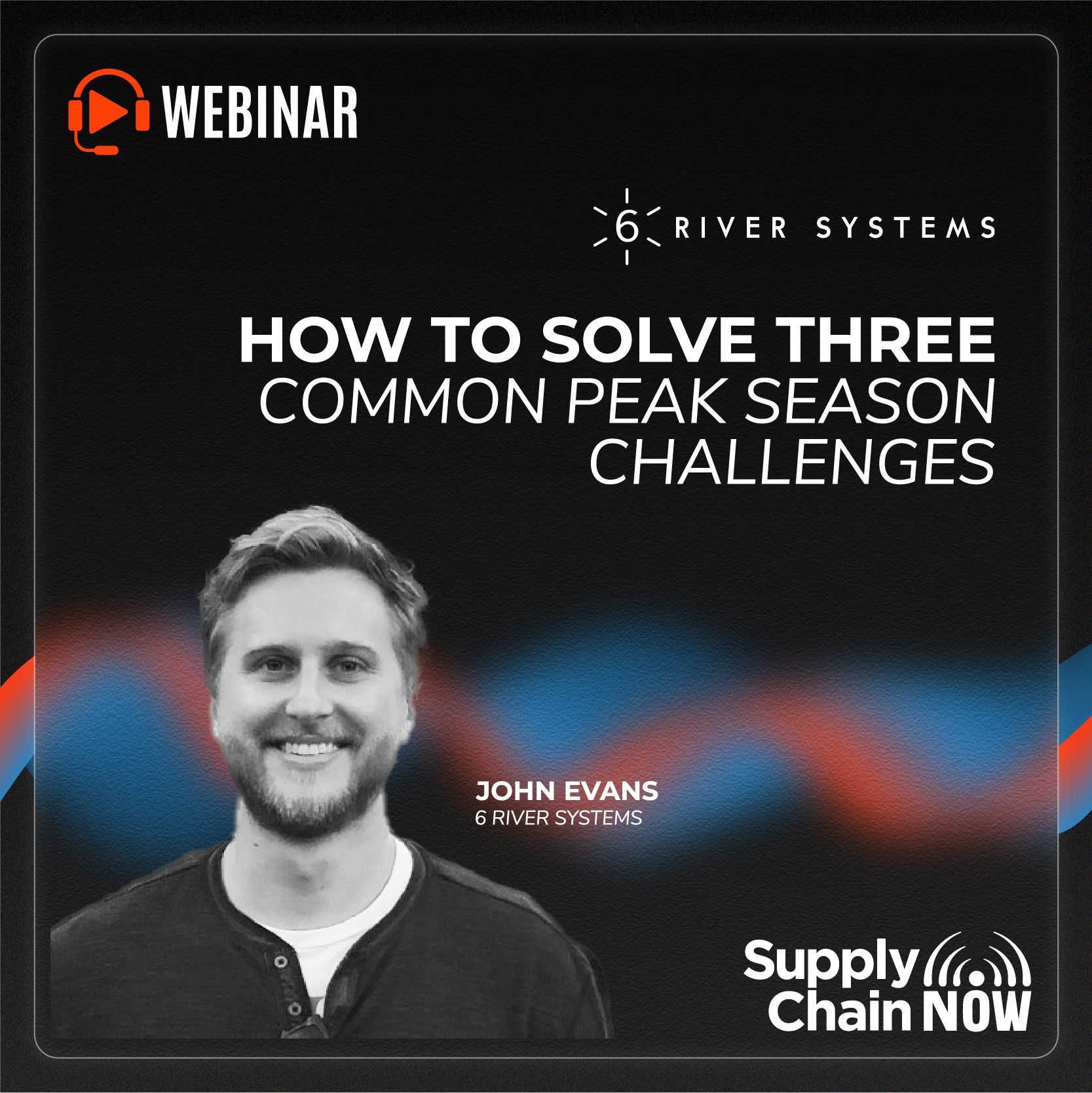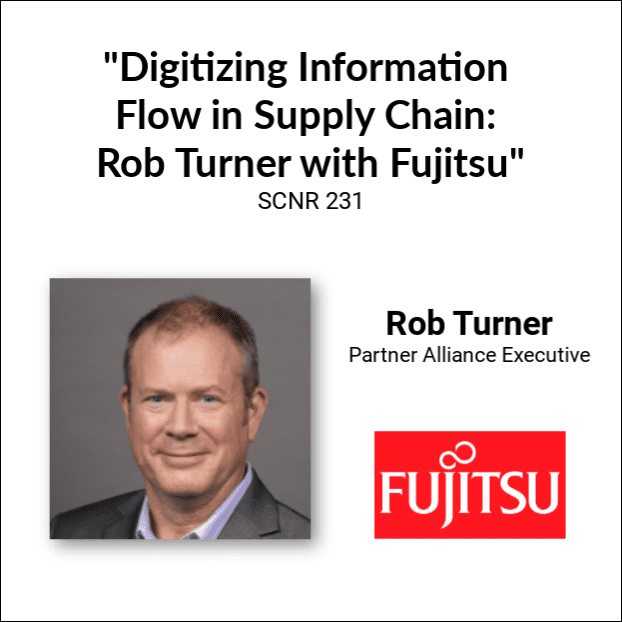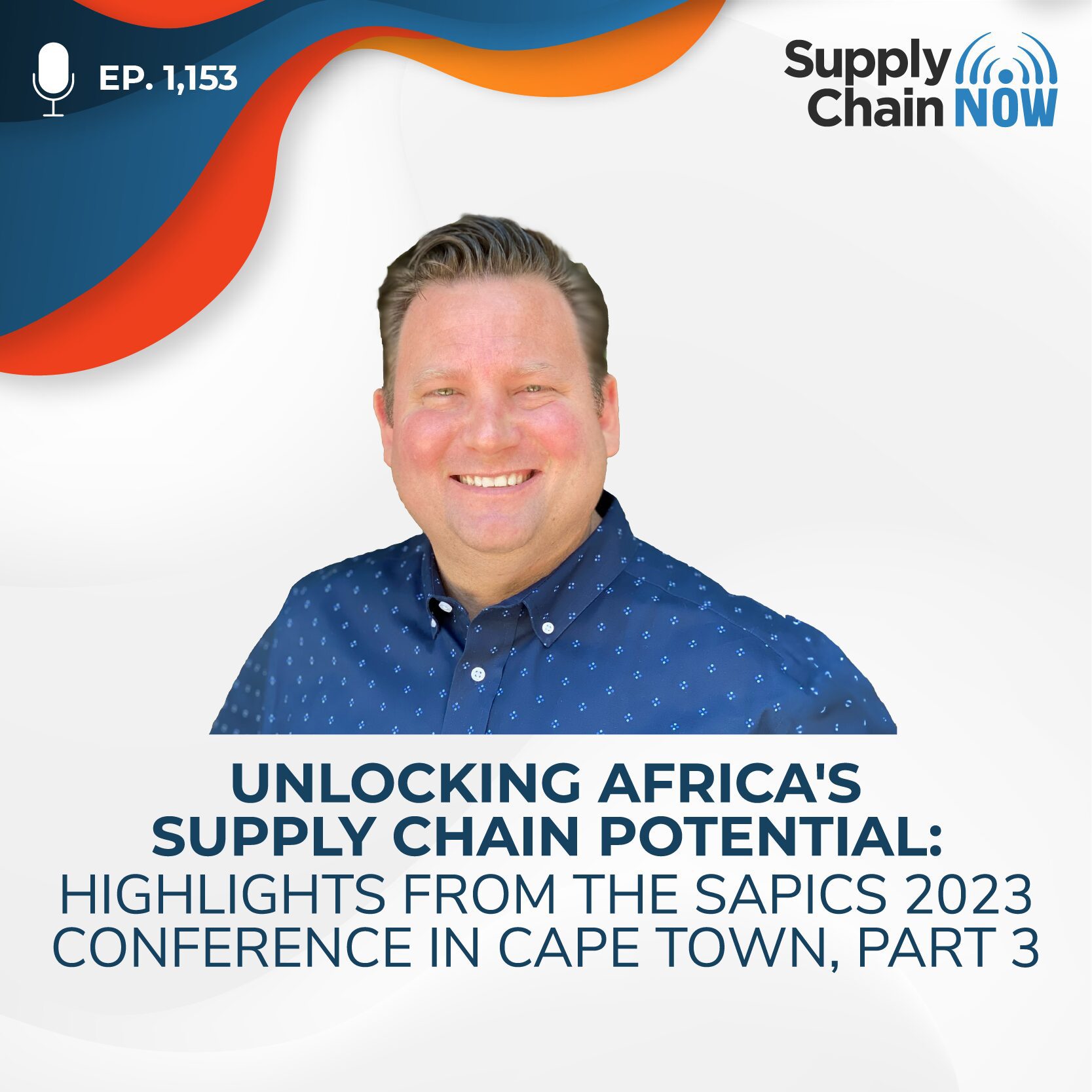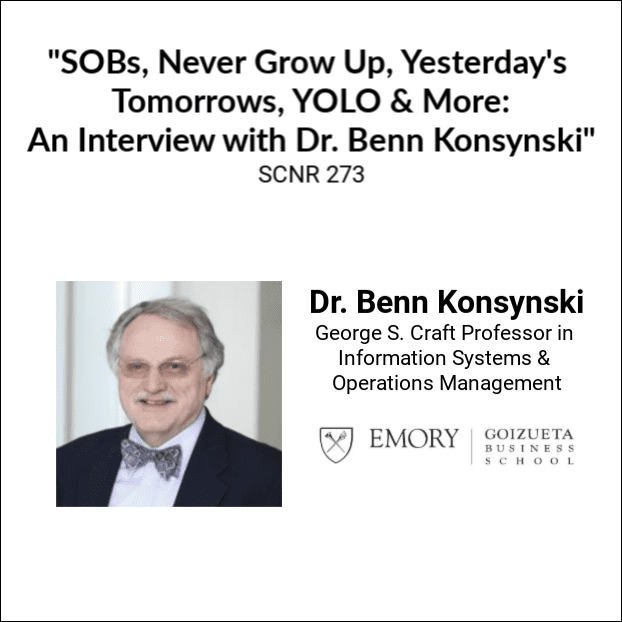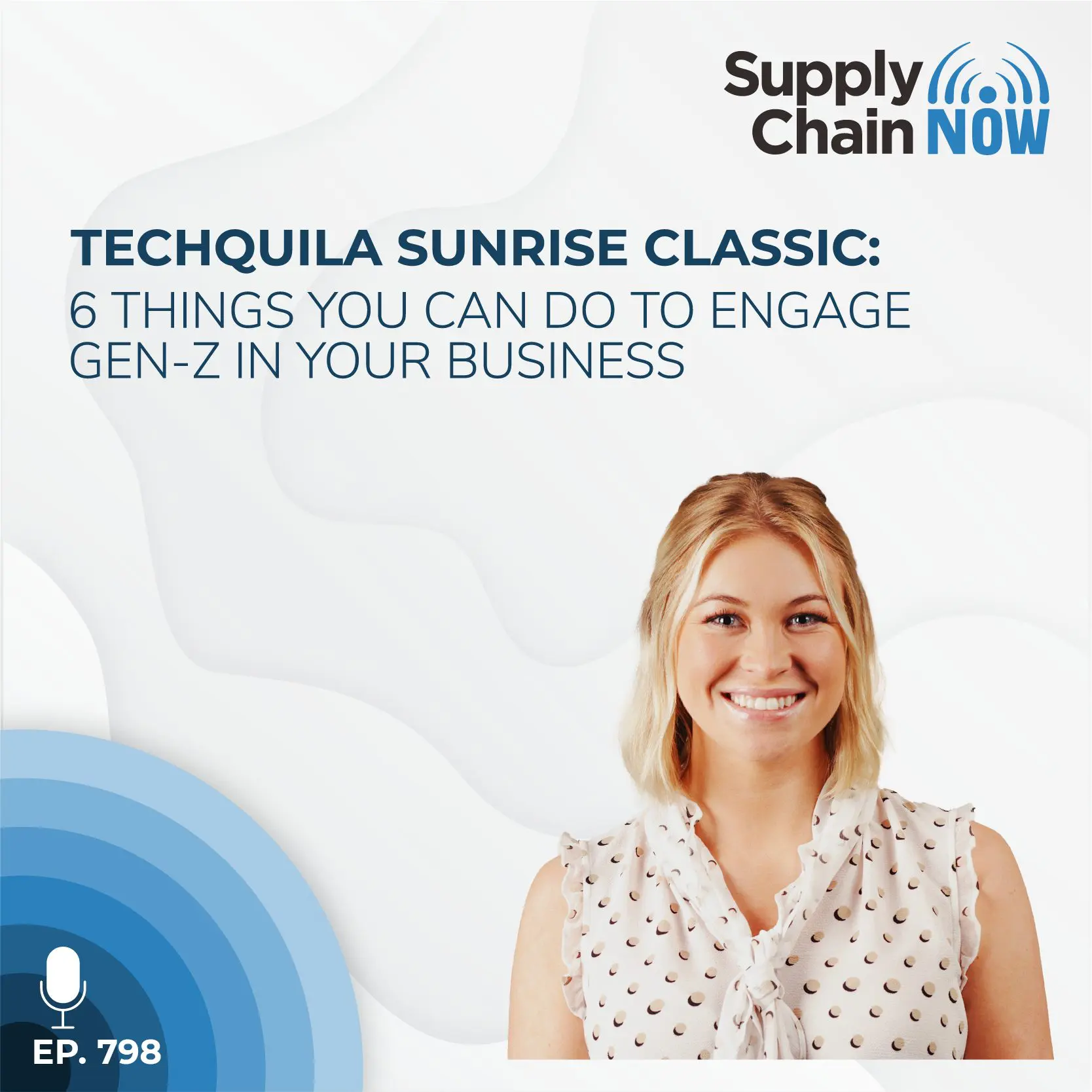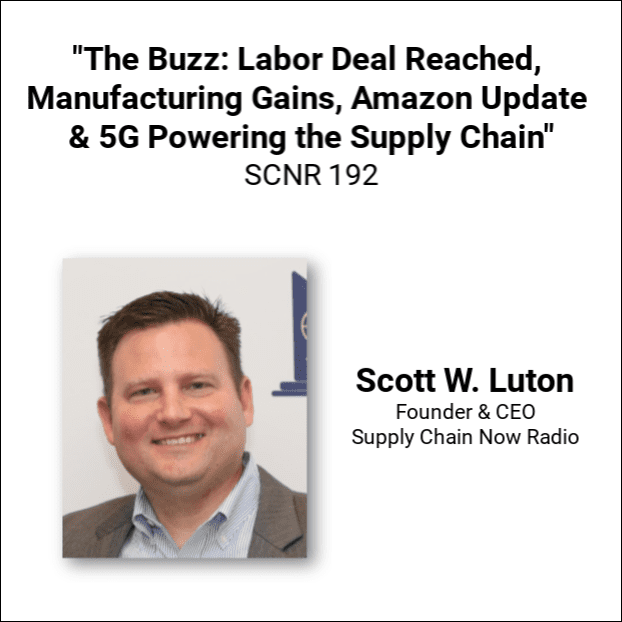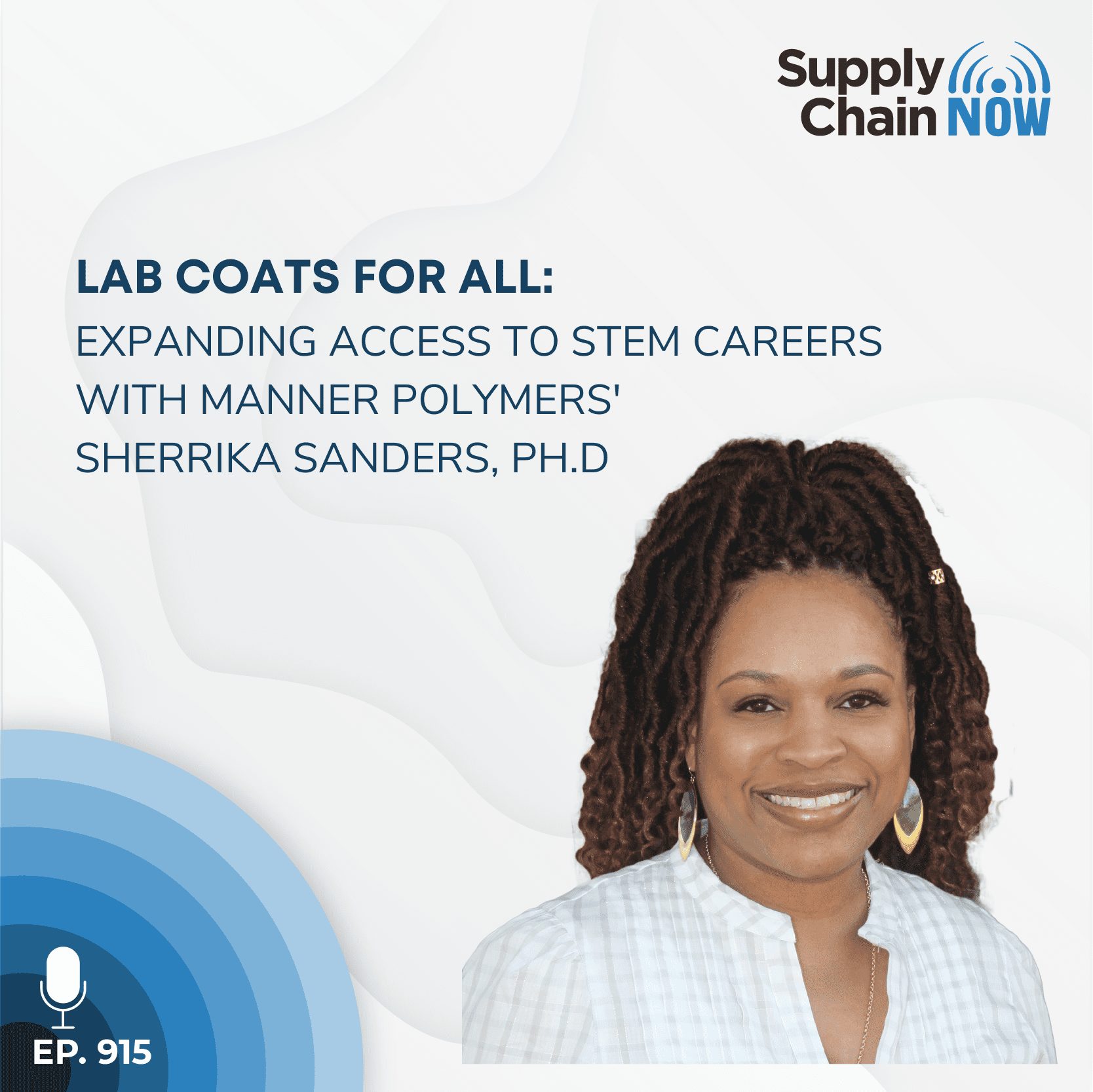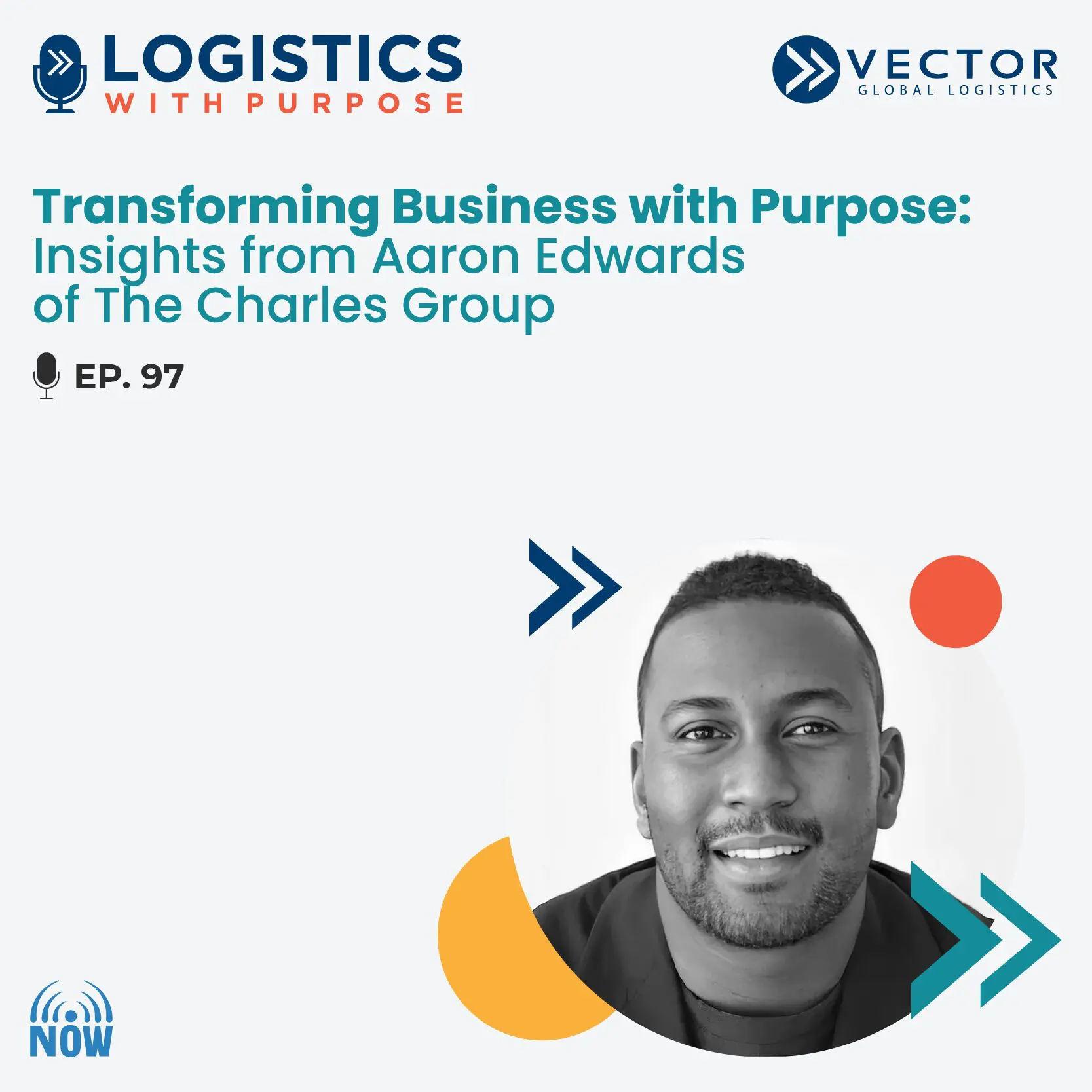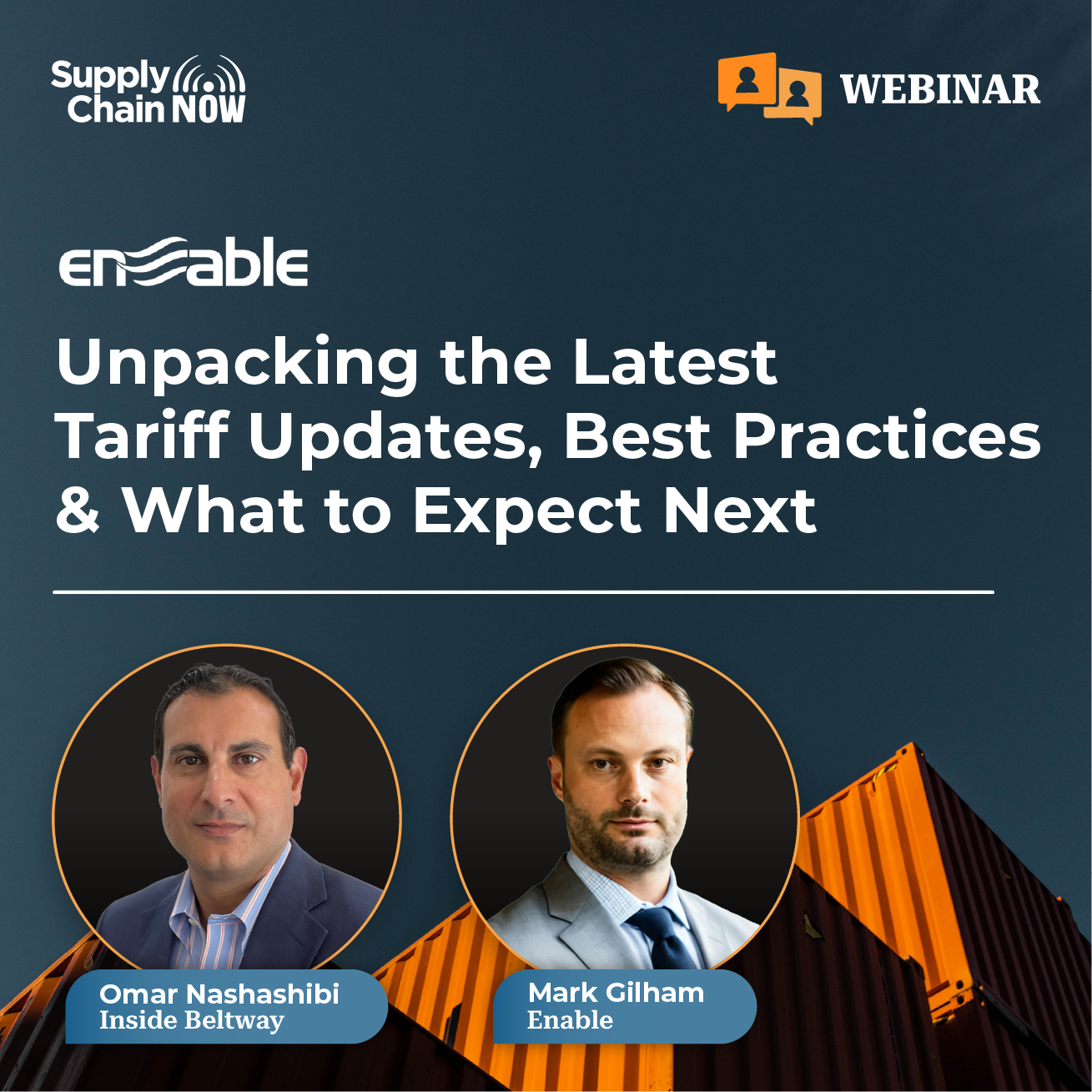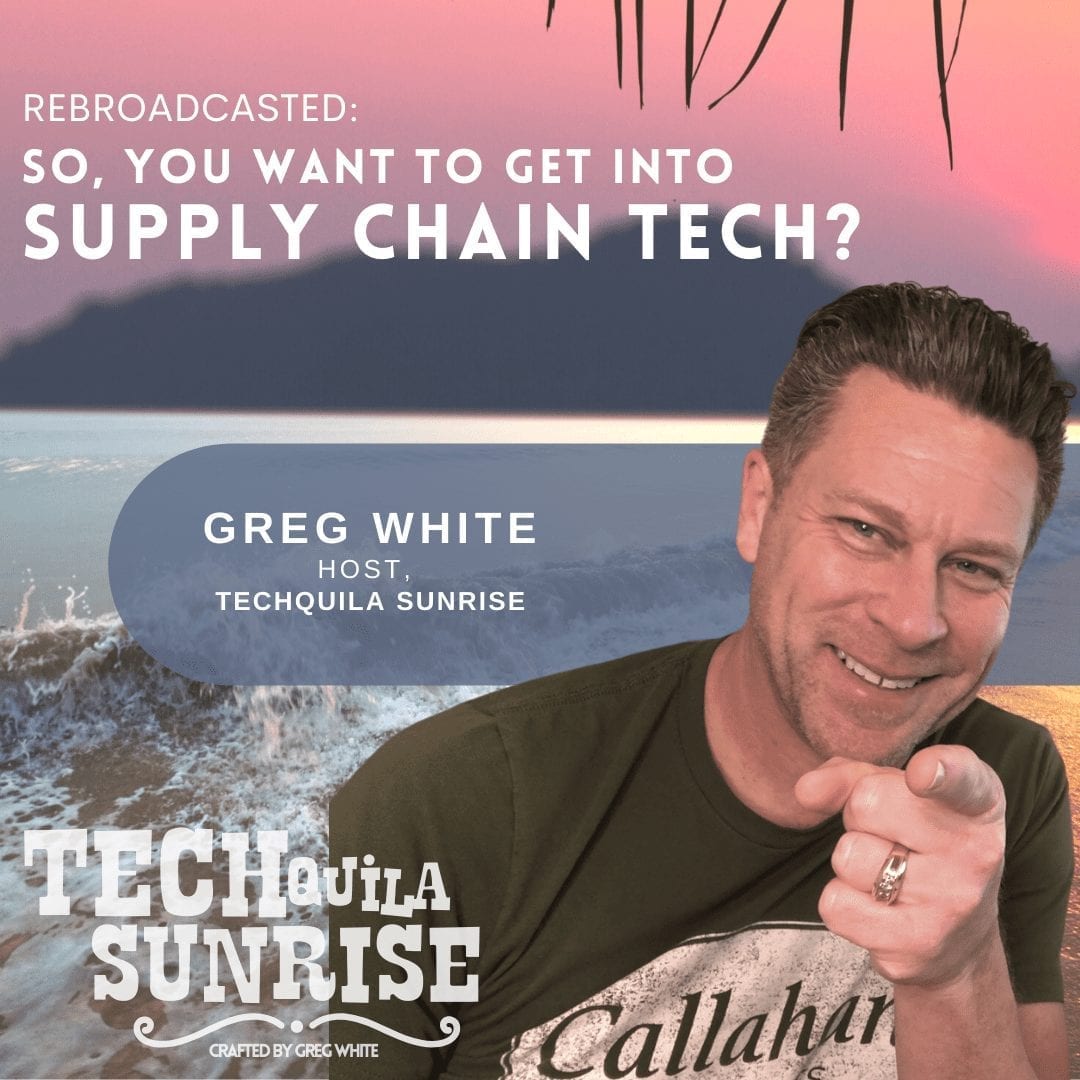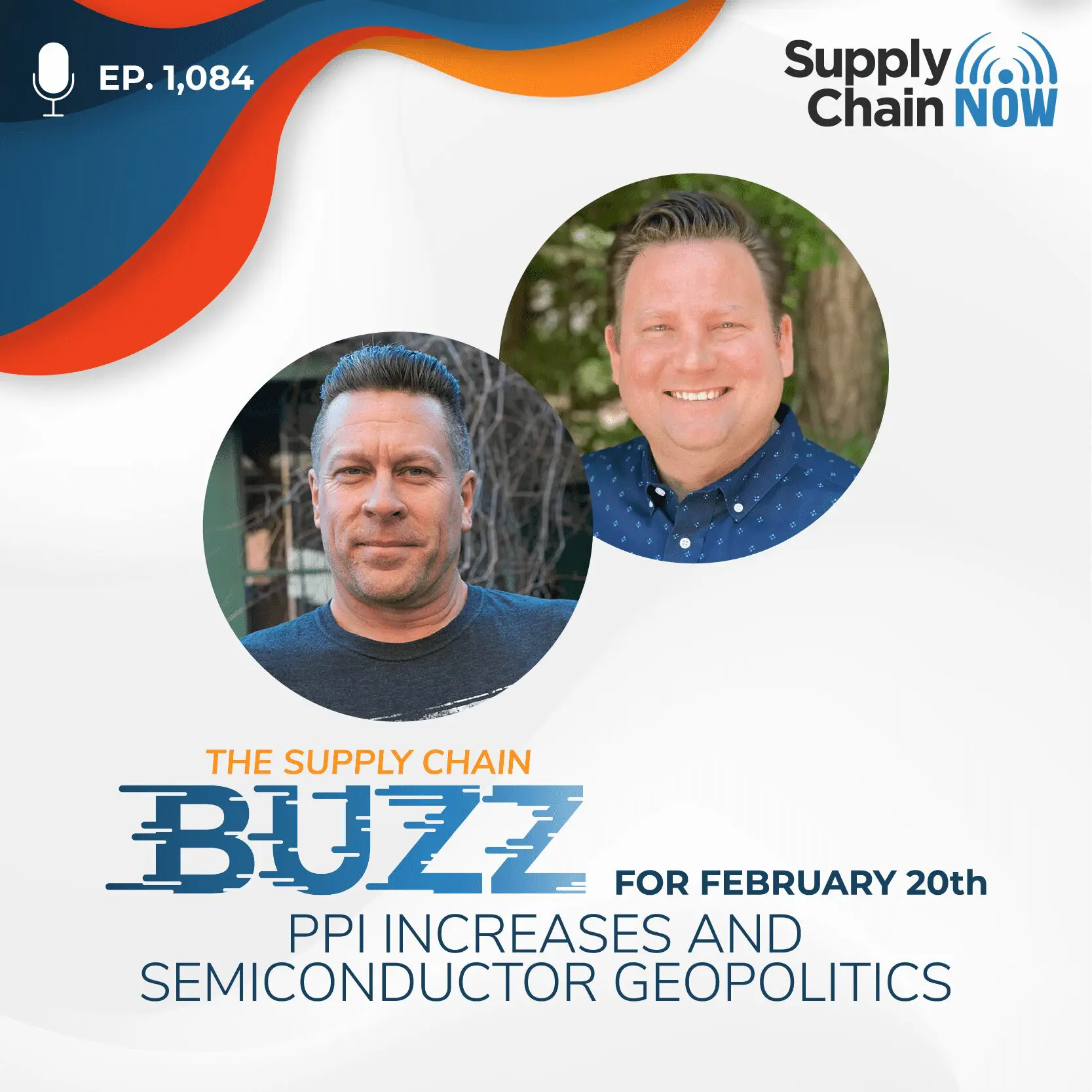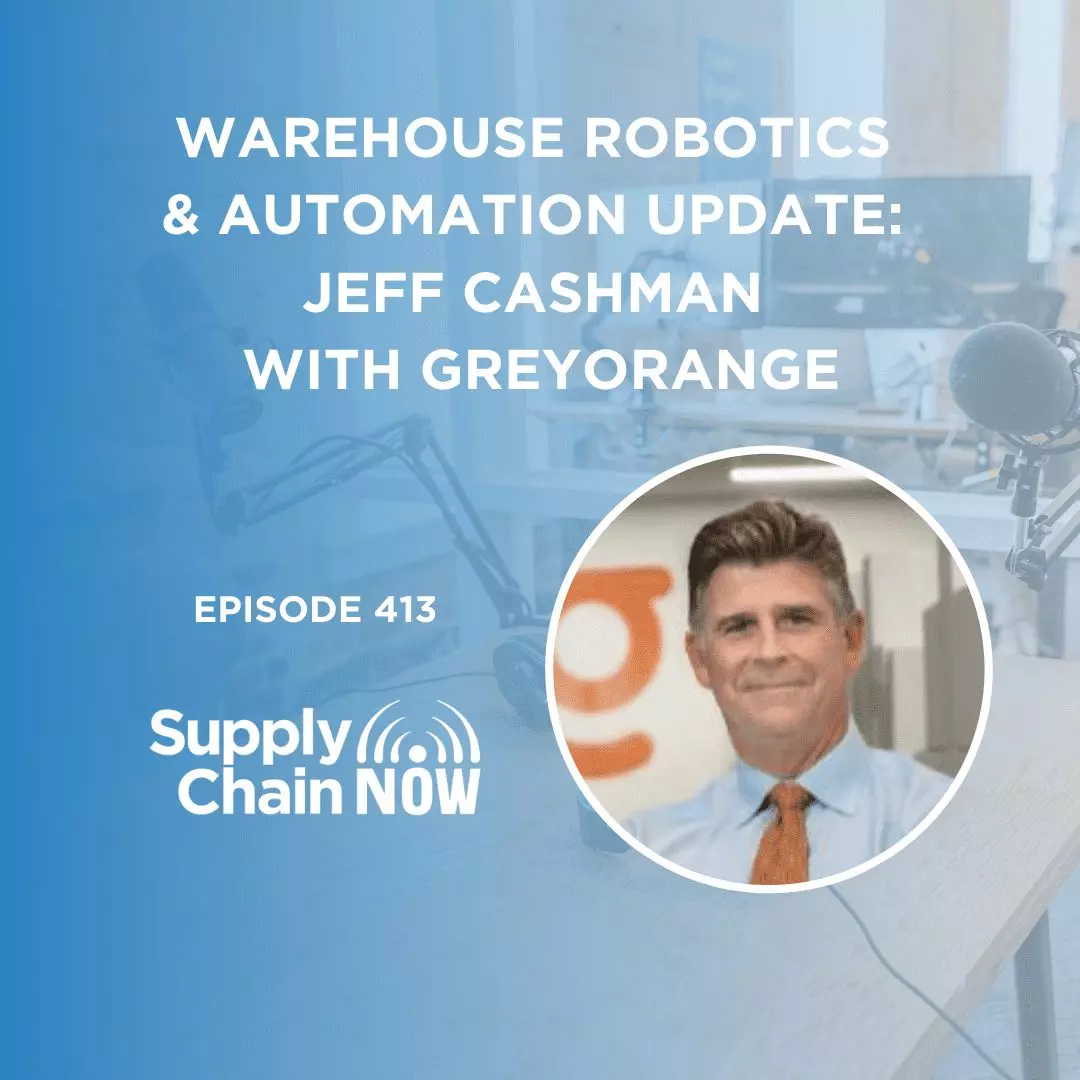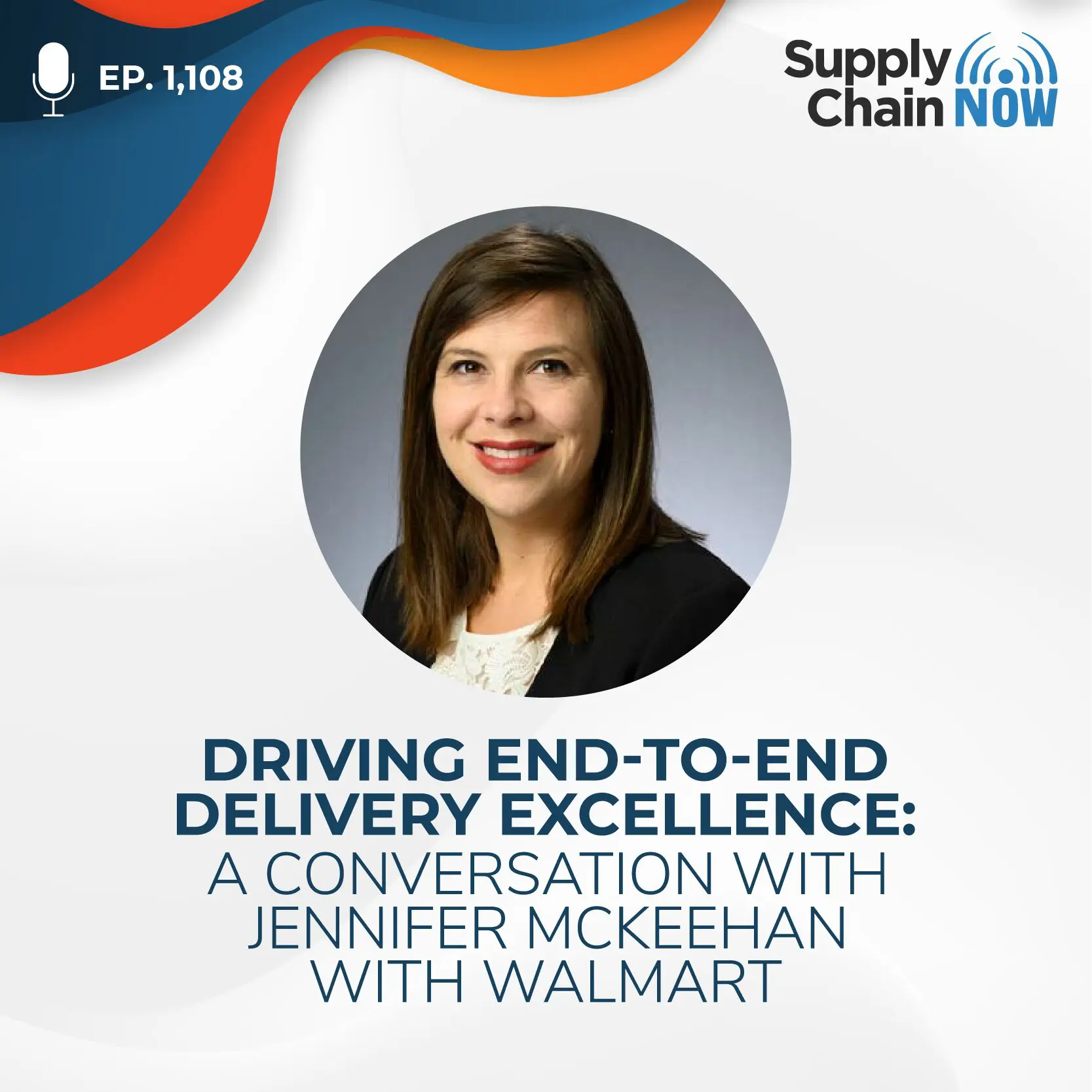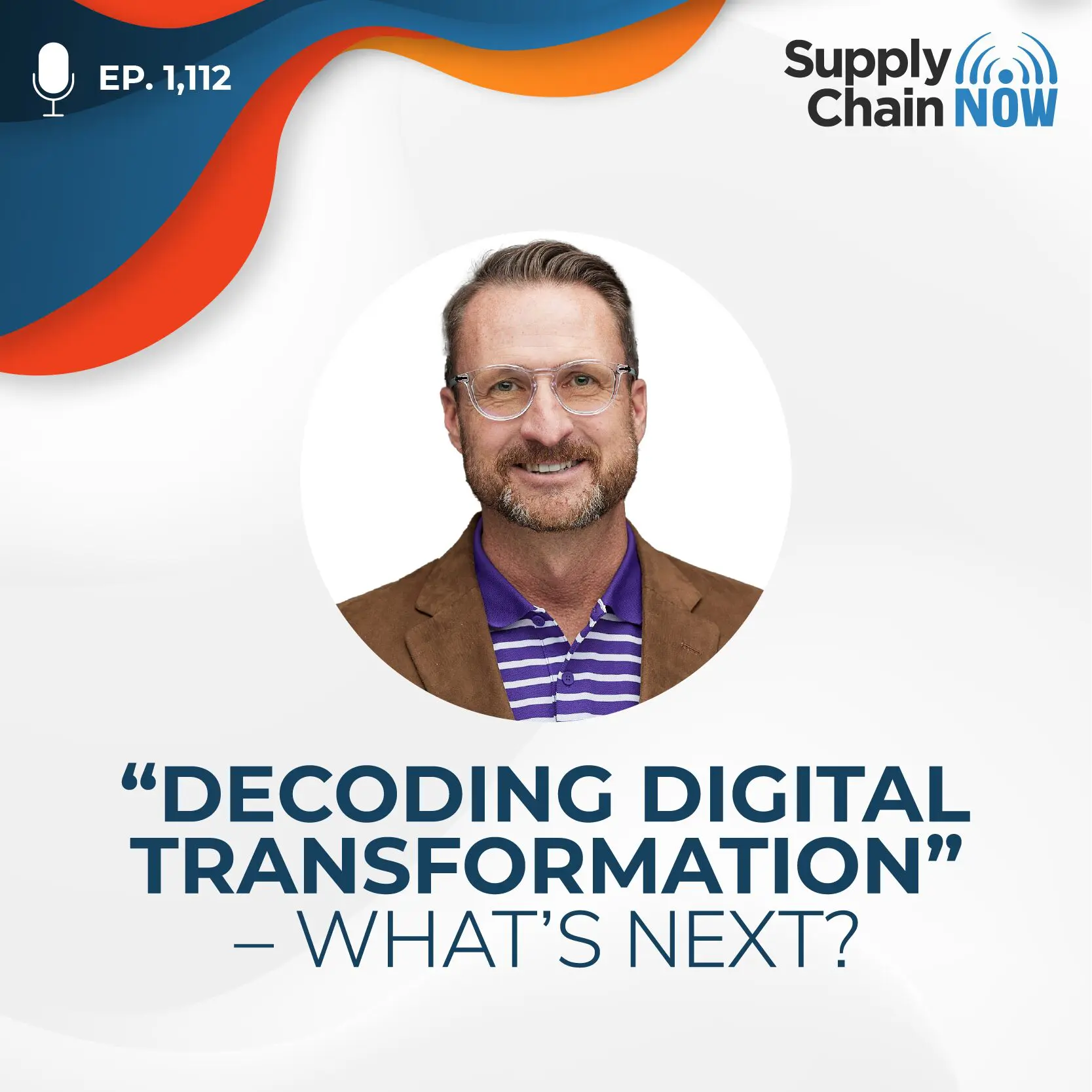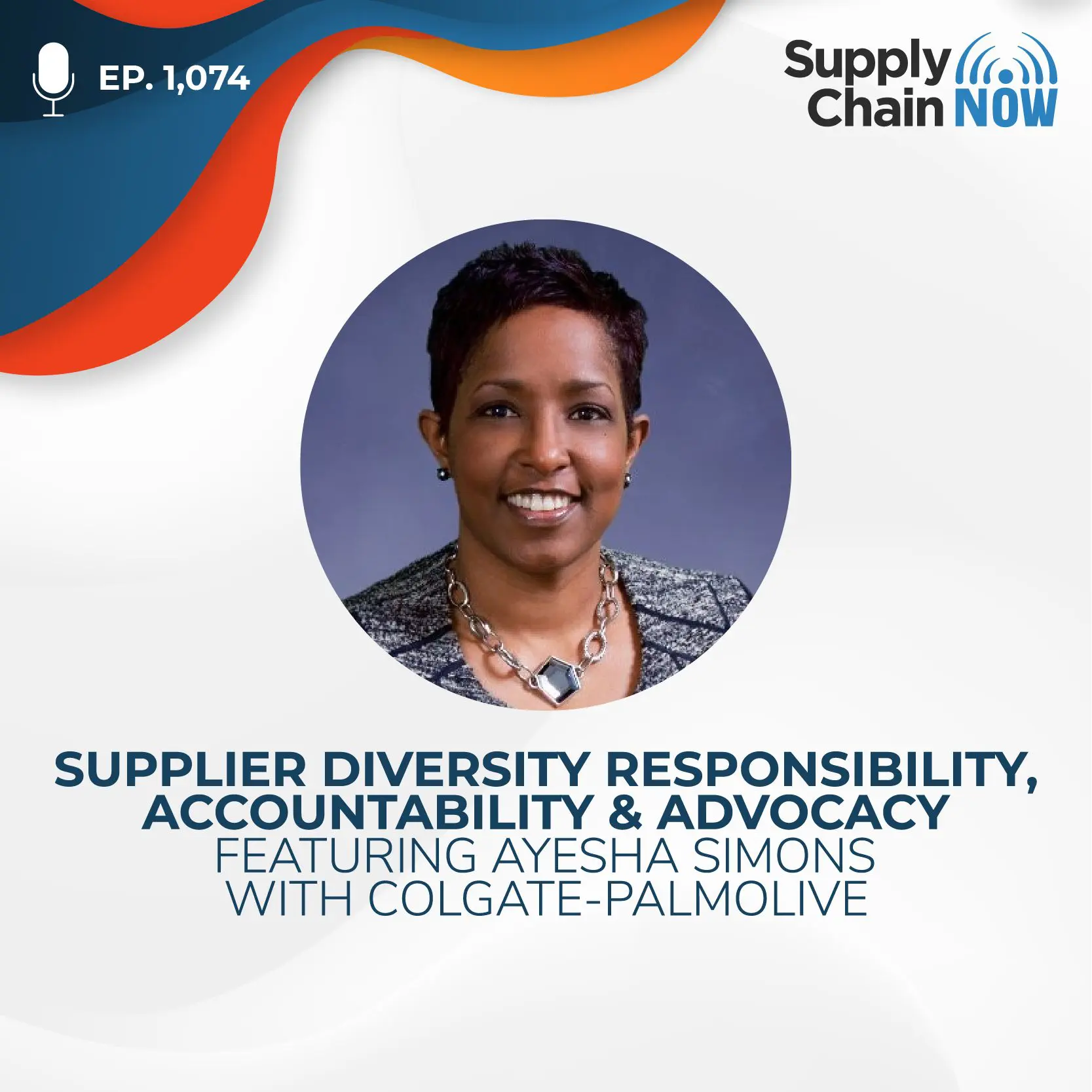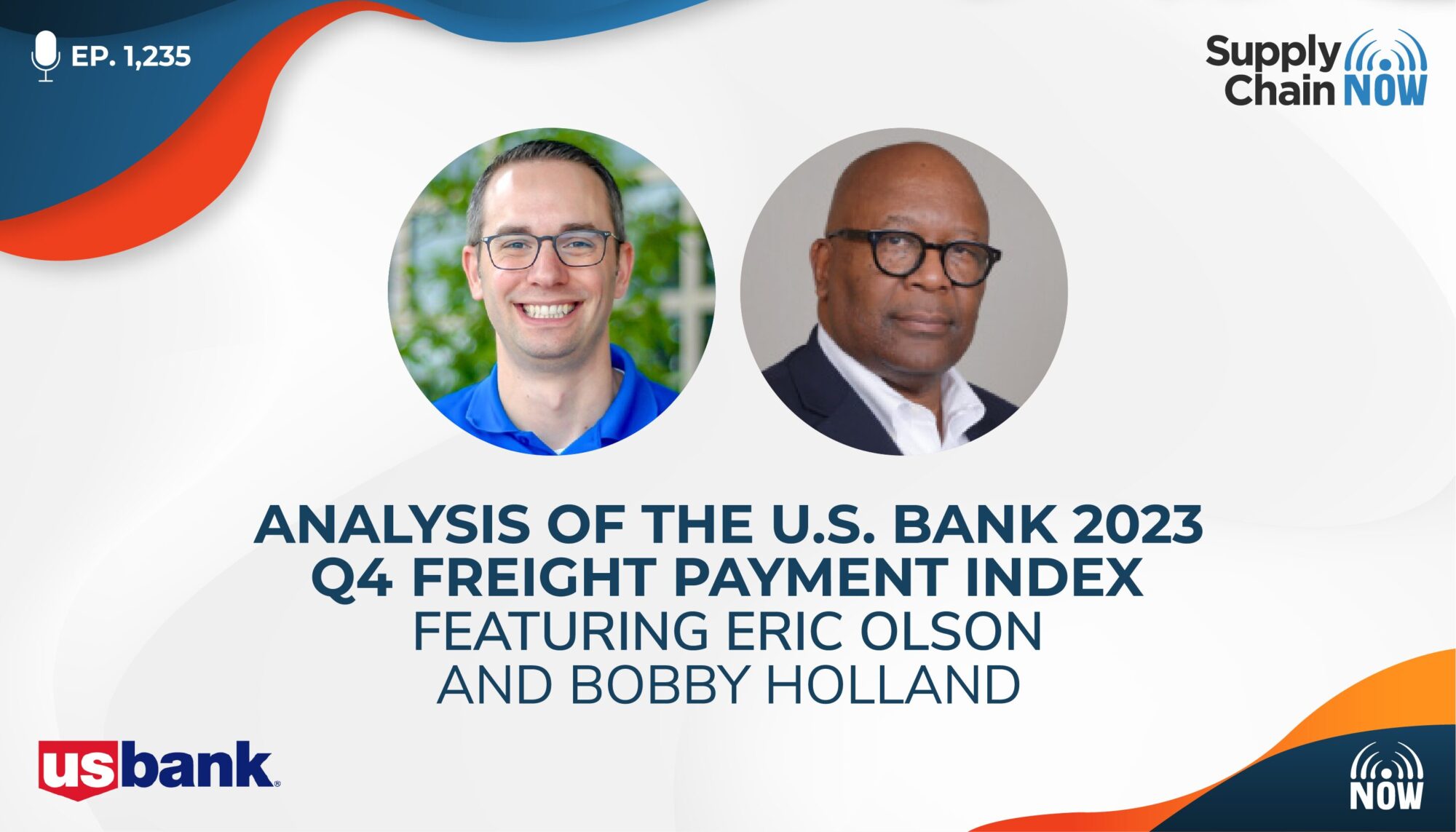
The U.S. Bank Freight Payment Index is a really valuable tool for us to understand what's happening in the market, and then put our own work on top of it to try to figure out where it's going.
-Eric Olson
Episode Summary
Bobby Holland is a man in the know. Nearing four decades of broad-based data processing, software engineering, and consulting experience, he is now the Vice President/Director of Freight Business Analytics, and in charge of the U.S. Bank Freight Payment Index. Published every quarter by U.S. Bank, it has become a go-to source of information for freight shipping trends at a national and regional level.
Joining Bobby on this episode of the podcast is the returning Eric Olson, Sales Support Operations Director at Total Quality Logistics (TQL), where he has spent almost 20 years working in a variety of management roles.
Listen in as the conversation focuses on the U.S. Bank 2023 Q4 Freight Payment Index, based on billions of dollars worth of spend data. Bobby reveals that one region of the country saw a huge drop in shipments of more than 25% year over year. Insights such as this, underpinned by raw and unquestionable data, are why companies such as TQL and supply chain professionals like Eric turn to it for valuable insights that help to underpin their own strategies.
Through the podcast, the duo talk through seven key takeaways from the 2023 Q4 report, explaining some of the trends and factors that are contributing to the findings.
To get their detailed analysis and full breakdown, tune in to the podcast now!
Episode Transcript
Intro/Outro (00:03):
Welcome to Supply Chain Now, the voice of global supply chain. Supply Chain Now focuses on the best in the business for our worldwide audience, the people, the technologies, the best practices, and today’s critical issues, the challenges and opportunities. Stay tuned to hear from those making global business happen right here on Supply Chain Now.
Scott Luton (00:32):
Hey, good morning, good afternoon, good evening, wherever you may be. Scott Luton and Greg White with you here live on Supply Chain Now. Greg, welcome to today’s live stream, maybe from Kansas City today. I don’t know, huh?
Greg White (00:46):
No, not from Kansas City, but repping Kansas City, yes. Yeah, yeah. Thank you by the way.
Scott Luton (00:53):
Good luck to you and all of Kansas City’s fandom, kingdom, Chiefdom. We approach the big game this coming Sunday. But speaking of big events, today’s live stream is almost going to be as big, Greg, huh?
Greg White (01:07):
For us in supply chain, it is. It is.
Scott Luton (01:11):
Well, on this episode, we’re going to be continuing a long running popular quarterly series powered by our friends at U.S. Bank, Greg. We’re going to be sharing key insights from one of the leading transportation industry resources, the U.S. Bank Freight Payment Index for Q4 2023. Folks, you can download your copy for free at freight.usbank.com. We’ll drop that in the comments in just a minute, so you can beat it up, dog ear it, spill coffee on it, mark it up, and follow along right with this. Greg, that’s an important thing to do for today’s the next hour, isn’t it?
Greg White (01:47):
Hanging on the wall next to you, yeah, frame it. You get a new one every quarter. So, it’s kind of like when people used to use these things called calendars, but yeah.
Scott Luton (02:00):
[inaudible] today.
Greg White (02:00):
It’s such a valuable tool. Of course, it’s not forward looking, but it is indicative of the future. Much like anything that analyzes the past, there is some information about what you can find in the future. I love it when we bring on a practitioner or a service provider or somebody who gets to say, this is how we use this thing. We’ve had some really great examples of how companies use it. I think that’s as important as the data itself, is what you do with it.
Scott Luton (02:30):
Well, and the good news, Greg, to your point is we get our cake and eat it too. We got one perspective as always, focus heavily on what the data is showing, and then we’re marrying that with another perspective as well as our expertise, focus heavily on what’s going on out in the marketplace. So, Greg, one more thing before we bring on our two esteemed panelists here today.
Greg White (02:51):
I think I know what you’re going to ask me.
Scott Luton (02:53):
I hope so. Hey, context is powerful and really critical these days. Now, our long-time global audience members surely, they get the value of what we tackle here each quarter, again with our friends from U.S. Bank and executive practitioners from coast to coast, but for our newer audience members out there, Greg, hey, tell us more about the importance of this research and the data we’re be covering today and the perspectives as we continue this popular series here at Supply Chain Now.
Greg White (03:20):
Yeah, yeah, of course. Bobby Holland and his team analyze billions, 42 billions of dollars of data every year to put this analysis together. And this thing, just since we started doing this, this thing’s grown by over 50%. So it’s a huge amount of data and growing, which makes it so representative of what’s really happening in the marketplace out there. And this is what these companies use to determine what they’ve seen, how what they’ve seen could lend to what they might see coming in the future. And it’s just a huge sample size relative to the marketplace. When you think about statistics and analysis a lot of times, it’s tiny, tiny fractions of data, and then it’s extrapolated like polls, like political polls. Those are usually about a thousand people, and there are about 60-90 million people that vote in an election in the U.S. So, this is much, much more representative of that, which makes it ever so much more powerful and brought to you by — I’m going to call him Professor Holland because he is styling today.
Scott Luton (04:29):
Well, let’s get —
Greg White (04:30):
And he looks like a professor. Let’s do this.
Scott Luton (04:32):
Well, what a great way to tee this conversation up, Greg. Really important information we’re going to be going over over the next hour. And big welcome to everyone that’s with us here for a lot of these shows, from Josh and Emily and Ben, Amanda and Catherine, all of y’all weigh in throughout the session. This is live, and we’d welcome y’all’s comments. So, to Greg’s — his final comment there, we have two wonderful guests with us here today. I want to welcome in Bobby Holland, director of Freight Business Analytics at U.S. Bank, and Eric Olson, sales support operations director with Total Quality Logistics. Hey, hey, Bobby, how you doing?
Bobby Holland (05:08):
Good, good.
Scott Luton (05:09):
Professor Holland as Greg has deemed you, Bobby.
Greg White (05:13):
I mean doctor. Right?
Scott Luton (05:15):
All right. And Eric, it’s rare — we love repeat guests here in general. Greg and I had a great time with you two or three years ago where you teamed it with Bobby to share some of your expertise. Great to have you back, Eric.
Eric Olson (05:27):
Yeah, thanks guys. As I told you, longer ago than I thought. It feels like yesterday, so I’m glad to be back and glad to have the opportunity again.
Greg White (05:34):
You seem like you’re holding up pretty good after two or three extra years in supply chain. Somehow you survived it.
Eric Olson (05:40):
Yeah, I mean, yeah, I have a good team around me that prop me up a lot, but I’m here again. I’m glad to be back.
Scott Luton (05:47):
Love it. You don’t age a day, Eric. Goodness gracious. You need to share some of your DNA with —
Greg White (05:51):
Like Bobby.
Scott Luton (05:52):
Your practices here. Yeah, seriously, just me and Greg to keep looking different, different. So, Bobby and Eric, we’ll save that for maybe the next episode. But hey, before we get into all things domestic freight and supply chain and a lot more, we want to start with a fun warm-up question. Folks, out there in the audience, we want to hear from you as well here. So the Grammys were held just the other night, me and Amanda watched most of them. It’s really, really lots of cool performances as always. Today happens to be the birthday of a few musical legends to include the incomparable Bob Marley who was born in Nine Mile, Jamaica on this day back in 1945. I don’t know about y’all I’m looking forward to the upcoming movie that’s going to focus on this journey. It should be released very, very soon, if not already. So with that as a melodic musical backdrop, I want to ask each of y’all one of your favorite all-time musical acts. And, Eric, let’s start with you.
Eric Olson (06:44):
Yeah, I could go so many directions with this because the Grammys just happened and because the esteemed William Martin Joel released his first new song in what, maybe 26 years, long been a Billy Joel fan, going back to when I was a kid. I had a VHS tape with all of the music videos from I think the Innocent Man album on him. My song back then was A Matter of Trust. But one of my favorite Billy Joel stories is when I was in fourth grade, my mom called into a local radio station in Detroit and won us tickets to go see Billy Joel and Elton John at the Pontiac Silverdome. This was two tours ago. Everybody thought this was going to be their last tour and they’ve done it a couple of times since. But yeah, my mom went with a bunch of her girlfriends and took me because I was the fan. It was pretty cool. So, Billy Joel now and forever.
Scott Luton (07:29):
Man, what a story. And that was an interesting performance to rap the show the other day as I recall. All right, so Bobby, that’s going to be tough to top there, but what’s one of your favorite all-time musical acts?
Bobby Holland (07:40):
All-time musical acts. Well, I’m stuck in ’80s alternative, so I think my all-time would be the band, New Order.
Scott Luton (07:50):
Okay. All right.
Bobby Holland (07:53):
Anytime.
Scott Luton (07:54):
Did you ever see them in person, Bobby?
Bobby Holland (07:55):
I did. New Order Public Image Limited and the group that — The Sugarcubes.
Scott Luton (08:01):
Okay. Man, I remember The Sugarcubes, Greg. I’m new to New Order, but —
Greg White (08:08):
You’re new to New Order?
Scott Luton (08:08):
I’m new to — hey —
Greg White (08:09):
Where were you in the ’80s?
Scott Luton (08:11):
I don’t know. Hey, there’s some stories there, but I’ll digress, Greg. All right, so —
Greg White (08:15):
Good point. Bobby, what they say about ’80s —
Bobby Holland (08:17):
The fact when I still had hair, so I remember it fondly.
Scott Luton (08:20):
But I do like how Bobby resides and still lives in 1980’s alternative land. That’s a good place to be. Greg, what about you, one of your favorite all-time musical acts?
Greg White (08:29):
It is so hard. I used to go to concerts so much. I would have to say — it’s funny, I have a Billy Joel story, but I don’t want to pile on top of Eric’s when he was — let’s put it this way, he was my neighbor in New York and he had a favorite bar. So anyway, I would have to say probably one of the best concerts I’ve seen would be Van Halen. I saw them in kind of a really small venue right when they, not right when they came out, but right before they came out in 1984 when they were still playing no keyboard music, and it was a fantastic concert. I was just a little kid. I went with one of my big cousins and it was a lot of fun. But I have mad respect for all three of you guys’ selections too; huge Billy Joel fan, that was one of the first concerts I ever went to right before my girlfriend dumped me in seventh grade. I was so hurt. It crushed me right after Billy Joel. I would guess she didn’t like it as much as I do.
Eric Olson (09:31):
Still can’t listen to Just The Way You Are, right? It hurts too much.
Scott Luton (09:35):
Oh, that hurts, too.
Greg White (09:35):
You may be right. I may be crazy. And, of course, New Order and all of that ilk. I mean, that’s when I was coming up. So I love all of that music. So, come on, try to sneak out of these things. This is a fun fact where we get to learn a little bit about people. So, let’s learn a little bit about Scott Luton.
Scott Luton (09:54):
Greg, I appreciate that. And R.E.M. — I’ll add two who got their start in the Athens scene, down the road, and of course, one of the few bands I went and saw in concert at the peak of their, arguably the peak of their popularity on the Monster Tour back in 1994. And that was awesome and we’ve been following them ever since. And my kids, my son in particular, has started to pick up on the R.E.M. tip, so that’s really cool to see.
Greg White (10:20):
That’s good.
Scott Luton (10:21):
All right, Greg, Bobby, and Eric, are y’all ready? We’re going — speaking of ’80s references, let’s get into Mr. Holland’s opus as we work our way through the [inaudible] we’re here today. All right. We’ve got a lot of folks, welcome in Lauren and Paul and Julia, great to have everybody here. Okay. So, we got a lot to get into here today and let’s tee it up on the front end. So, Bobby, as we’ve already established, really value you coming back with us every quarter, your insights and data-driven perspective, as does we get a lot of feedback across the globe. Today, let’s start with a little beyond music now, a little sneak peek of some of the takeaways that we’re going to be walking through from the Q4 2023 Freight Payment Index that we’ll be diving in today. So, what are a few of those things we’re diving into here today, Bobby?
Bobby Holland (11:06):
Okay. Well, we’re going to look at what the trends are, what important trends we’re seeing in national shipping and spend volumes. We’re going to look at which region in the United States saw the biggest increase in spend and then we’re going to learn what region of the country saw a drop in year over year shipments of more than 25%.
Scott Luton (11:26):
Wow, more than 25%. And that’s just the tip of iceberg, folks. Again, we’re going to marry Bobby and his team’s data with Eric’s expertise and perspective out there in the marketplace. And you get Greg White’s patented commentary. Come on.
Greg White (11:41):
General sense of wonder.
Scott Luton (11:42):
General sense of wonder.
Greg White (11:44):
I know the answer to the drop of 25% and I’m still shocked when he says it.
Scott Luton (11:49):
So true. It’s so true, Greg.
Greg White (11:51):
Yeah.
Scott Luton (11:52):
All right, folks out there, download your own copy of this. We’re dropping a link, making it real easy. One click away. You can use the link over in the chat or you can also — if you’re listening to this, you can venture over to freight.usbank.com. Okay, Greg, before we get into — we’re going to have seven key takeaways here in just a moment. Where else are we going with Eric and Bob, before we get there?
Greg White (12:13):
We probably ought to know what the heck these guys do and why we should listen to them. Right? So, Eric, we know, but maybe you can tell some folks that haven’t seen you in the last two or three years, what you do and what Total Quality Logistics does? I just call it TQL, is that okay?
Eric Olson (12:30):
Yes. Yeah.
Greg White (12:20):
Okay. Thank you.
Eric Olson (12:31):
It says it on my shirt. It’s fewer syllables. We’re here for Bobby’s number, so fewer syllables is better. Yeah. So, I guess to summarize the first 15 minutes or so of this to all the younger people who are going to be the future of this industry who are hopefully here, watching. I work with many of them, just ask your parents, ask your parents about all that stuff. So, hi, I’m Eric Olson, I’m support operations director here at TQL. We are a 3PL. We’re headquartered in Cincinnati and we’re a full service 3PL. We got our start in truckload, but we’ve branched out over the last few years into every mode and we’re servicing a variety of customers from Fortune 50 down to small mom and pop, small businesses all over North America and now throughout the world as well.
Greg White (13:13):
When I started my business and we moved out of the basement and into the first office, I should say, in Marietta, Georgia, there was a TQL office across the street from us. So, we got to talk to those guys firsthand at lunch like two days a week. So, it was cool to see what was going on in the industry. And because you guys are sort of everywhere, you have a real finger on the pulse of things. All right, Bobby, I know what you do and, of course, I think a lot of our guests know what you do and we know what the value of this data is, but maybe give some folks some insight on how you do it, how you analyze it, how you put it together, what you hope it represents, whatever you want to share.
Bobby Holland (13:57):
Sure. We analyze transaction data from over $42 billion in spend and shipments, and we reproduce the index; it’s a quarterly chain-based index and we use it to compare basically between quarters, the velocity of change in the marketplace. And again, we want to show our perspective of the marketplace. So, we have our national overview as well as a regional breakdown. We see the impacts on the national level, but then we also look at the five regions and how those impacts break down and drive different things in each of those regions.
Scott Luton (14:37):
So, follow-up question for you, Eric, and I’m going to share a couple of visuals from the Q4 Freight Payment Index. Speak to us if you would, how do you and other business leaders like yourself, how do you all use reports and research and data like this?
Eric Olson (14:52):
Well, specifically at TQL, everybody’s got a niche in the market. You have shippers, you have 3PLs, you have carriers, and as a 3PL, we’ve got a little bit of shipper and a little bit of carrier in our daily operating model. So when we’re trying to determine the price of our services, when we’re trying to determine strategic initiatives, we’re not just looking at, hey, what are our costs and what do we need to make? Or we’re not looking at, hey, what’s our budget and what can we spend? We’re kind of doing both and we have to do it in a way that allows us to service our customers as well as we possibly can and allows us to be the choice for the carriers that want to work with us. And so, we have a lot of internal information, but there’s a lot of external information that helps us make those decisions, that helps us learn about the industry.
Eric Olson (15:32):
What we really like about the U.S. Bank Index specifically is the number that Bobby mentioned, those $42 billion of transactions, that’s real money that’s going in and out the door there. And so, there’s no modeling or anything that we need to put on that to figure out what it means. We know that this is what large shippers are spending to get their freight moving. It’s representative of everything moving around the country. And so, it’s a really valuable tool for us to understand what’s happening in the market and then put our own work on top of it to try to figure out where it’s going.
Scott Luton (16:02):
Well said, Eric. And, Greg, when you think of — I think we’ve been conducting this series for about four years now, if my South Carolina math holds — compare what we just heard there from Eric and how other business leaders that we’ve spoken to and, of course, the folks we hear back between the shows how they use [inaudible].
Greg White (16:19):
Yeah, well, when you’re providing a service to the industry like Eric and his crew do, it provides a lot of immediate insight. But what a lot of the shippers try to do is get an idea of what they ought to be budgeting for shipping. That’s one thing that they’re trying to figure out and which direction it’s going, what the availability is going to be in various regions depending on what part of the industry that they’re in. So, there’s just so much that you can figure out. I mean, we’ve had companies who build their budget off of that, who inform their contract carriers based on that or even start to look at whether they’re going to use spot or contract, all kinds of things because of what they perceive as the trends or the flux or the stability of the industry. I mean, there’s a ton of things that you can do with it and we’ve heard a lot of companies share how they use this.
Greg White (17:12):
I know Bobby can’t say this, but it is helpful. It’s not predictive data, but it is helpful in predicting what could be coming because you can look at the past because the chain-based nature of it and you can see that there is a trend and there’s also not just data, but all this explanation around the data in the report that allows you to discern using your own judgment as to whether you think that those conditions will continue, whether they’ll exacerbate or they’ll start to fade, or whatever. So it’s more than just data, but the data is what informs all of that additional information.
Scott Luton (17:51):
Well said, and I love the word — we love the word discern, such a powerful and important approach here in 2024. Okay. Hey, two quick things and then we’re going to jump right into the key takeaways with Bobby and then get Eric and Greg’s commentary on those seven things. But first we talked music, we got to add Josh’s take here, Warped Tour, Lincoln Park and Santana. Actually, I bet Lincoln Park and Santana were on the Warped Tour is my thought there, Josh. Correct me if I’m wrong and let us know how cool that concert tour was.
Greg White (18:20):
What a great day of music that is. Music that is decidedly Gen X, right? Lincoln Park, but also Santana, which was our parents’ generation from the ’60s and still ripping it today.
Scott Luton (18:33):
Man, incredible. Incredible. Okay. And then, the second thing I want to share right before we get into key takeaways, just again, I shared this a second ago, give y’all a sense there. Greg was talking about historical, look in history and help bring that context forward as we identify where we’re headed. It’s so important. So, the U.S. Bank Freight Payment Index, two core measurements, shipment activity, shipment volume and spend volume. So you’ll hear us talk about that quite a bit. And then secondly, as you’ll see in a minute, it also dives into one, two, three, four, five different regions. So you get national information and you get more local and regionalized information, which I think is one of the biggest parts of the value here today. Okay. Greg and Bobby and Eric, I think the table is now set. The table is now set. So, Bobby, as we start to dive more into the seven key takeaways from the Q4 rate payment index, what’s the first one as it relates to national shipment volume?
Bobby Holland (19:35):
Well, as people, no doubt, saw from the chart that you showed, we had double-digit drops in both shipments and spend, and this was the first time we had both of those dropping in double digits since Q1 to 2019. It’s just an interesting indication of where we’ve been.
Scott Luton (19:55):
Agreed, agreed. So, Eric, when you get that first bullet point, first of the seven key takeaways, what are you seeing? How does that square with what you and TQL team are seeing?
Eric Olson (20:05):
Yeah, I mean, that matches our experience pretty much spot on. And of all the unpredictable things that have happened over the last few years, really that number was kind of predictable as we saw what the market was doing, read about demand and inventories in the larger economy. I think it was no surprise to us that that was the impact, of course, the question and we’ll talk about it later. It’s going to be where does it go? Does it continue? What does it mean? But, yeah, I mean, that’s exactly how it felt here on the ground.
Scott Luton (20:34):
Good points there, Eric. All right, Greg, your thoughts?
Greg White (20:38):
I think of the great philosopher Clubber Lang. It’s been a strange, strange time, not solely impacted by what’s going on in the states, of course, with everything that’s happening in the Red Sea and all of that area there, right? But yeah, it’s been a strange and, I think for a lot of companies, painful time. I mean, I have occasion to talk — we know the CEO of Vector Global Logistics and we know a ton of actual trucking company leaders and I think they seem encouraged. Though, they feel like they are through the sort of depths of the pain, at least the four or five that I’ve talked to feel like they’re through that. But the stories that they have and that they’ve shared over the time over the last quarter has been eerie in some cases, not Lake Erie either.
Scott Luton (21:36):
Right. Hey, I love it, Greg. Whenever Clubber Lang, the one and only Clubber Lang makes an appearance in our business conversations. Was that Rocky II or III? I always get them confused. I think that was Rocky II, right?
Greg White (21:47):
Yeah, I think it was two, yeah.
Scott Luton (21:48):
Okay. All right, love it. All right. So that’s just the first. We got six more to go. So, Bobby, now moving from shipment volumes to spend volumes on a national basis, what’s the second key takeaway there?
Bobby Holland (22:00):
Well, with the second key takeaway is in national spend, the 1.4% drop was the smallest decline in the last three quarters. And again, you can see that when you balance that or map that against the double-digit drop in shipments, you can see that costs were staying higher than normal for that time period. So, again, interesting set of numbers.
Scott Luton (22:25):
Absolutely. And folks that download — well, actually, folks have their finger on the pulse of what’s been going on across really global supply chains, certainly domestic supply chains. And on a more targeted level folks that have downloaded the Q4 Freight Payment Index, you should know inventory reduction, right? Trying to normalize inventory. That’s been a big push. In fact, Greg, Bobby and Eric, according to the Census Bureau, the ratio of inventories to sales when it comes to general merchandise stores in fourth quarter 2023, well, it’s getting closer and closer to where the ratio was pre-pandemic. Get this. November 2023, that ratio was 1.36 and in November 2019 it was 1.33. Getting closer. You hear a lot more companies re-embracing just in time once again. We knew that happened, though. Okay. So when it comes to the national spend, Eric, your comments there on what you’re seeing out in the marketplace, especially when you compare and contrast what Bobby just shared.
Eric Olson (23:25):
Again, similar, I think there’s probably a little bit of seasonality there. We kind of expect the spend to be a little stronger in Q4. But as the market downturn has just lasted and worsened, I don’t think it’s any secret that unfortunately we have a lot of transportation companies that aren’t able to stay open that are shuttering. There’ve been some pretty notable names in the news in that regard, but there’ve been thousands and thousands of smaller companies that have gone on in the market unfortunately, and it is very simple supply and demand when it comes to spend in a lot of cases. And so, I think that we’re starting to see the impact of that prop up the spend a little more than the shipment volume.
Scott Luton (24:06):
Thank you, Eric. Greg?
Greg White (24:08):
Yeah, I think I see a lot of the effect in the retail environment. Americans are running out of other taxpayers’ money at $3.1 trillion that we pumped into the economy is running out. And I think a part of the inventory decline was retailers anticipating a decline in sales. They predicted lower than average peak season – I always want to say holiday, we can’t even say holiday anymore – peak season. And I don’t know if you guys have seen it, but I still think of 2021 and early 2022 when you couldn’t get a bargain on anything. Everything was full price or more. And now, I’ve started to see retailers promoting sales and sale prices. I started seeing that probably around the middle of the year with discretionary and luxury goods, but it’s really coming into the mainstream now. You can tell that consumer activity is tailing, and consumer sentiment is that they expect harder times in the economy. So, that had a big effect on what we saw moving around the country and the world.
Scott Luton (25:13):
Excellent points there. Excellent points. Okay. We’re going to be making a shift now in these seven key takeaways. So in the first couple we really dove more into national trends, shipping and spending. And now we’re going to do just like we talked about, move into each of these five regions that the U.S. Bank Freight Payment Index focuses on. And again, freight.usbank.com to download your own free copy of this quarterly information. Okay. So, Bobby, starting with the West, we’re going to kind of mix it up a bit. A lot of times we’ll start in the northeast. But oh, no, we’re going to start way out there in the West today for our third key takeaway. Your thoughts?
Bobby Holland (25:50):
Well, the West experienced the smallest quarterly drop in shipments, which was about 2.9% of the five regions. And this may be attributable to pickup port entry. Import volumes are up slightly in the West, but then we also balance that with soft retail sales and it’s one of the largest economies in the country so any movement there is going to have impacts that ripple across the country. So, flat interest in demand in sales and demand for manufactured goods impacted this region.
Scott Luton (26:27):
Okay. Eric, out West, what are you and the TQL team seeing?
Eric Olson (26:31):
Yeah. I think that that’s really evidence of what we’ve been talking about, that these inventory drawdowns that had been going on over the last several quarters are getting stable, right? The West Coast is impacted by that the most here in the U.S. A lot of stuff is coming across from Asia and so I think the decline there has more to do with activity in the previous quarters than really anything tangible. We did — we saw imports pick up the way we usually do, but not to the extent that we have over the last few years because again, we’ve got a lot of retailers, a lot of other types of businesses have their inventories where they want. And I think that’s exactly why you see that low number there.
Scott Luton (27:09):
Excellent point, Eric. Greg?
Greg White (27:11):
Yeah. We’re also seeing sort of a drawdown of fallen winter goods and peak season goods as they build into spring at a retail level. So that’s going to have an impact. I think, as I said earlier, as everyone said now that everybody was very conservative and they were drawing down goods. Scott, think about this. I just think about this, Eric, while you were talking, is — not that I wasn’t listening, Eric, it was fascinating. No, but you made me think of this situation. It was about this time last year iRobot got a huge shipment of Roombas that were supposed to arrive in November. Because of port congestion, they arrived after Christmas. So if you bought a Roomba at Christmas this year, you bought last year’s model, but you probably got a pretty good deal on it. And it is that kind of because people missed so big at the end of 2022. Remember, we had the huge overstocks of patio furniture, which I ruthlessly took advantage of. We had all kinds of appliances and all sorts of things with long, long lead times where they expected last holiday season to hit the way the previous, the end of 2021. And it did in large measure, but they could not get the goods here because of port congestion.
Greg White (28:31):
So, now we have much less port congestion, Scott. I was just monitoring the global Hilton Head Port backup index to Savannah and Charleston and — that’s the official name. Please write that down, people. And there were only seven ships and all of them were moving within just moments. Literally, it felt like of anchoring offshore. So, it’s a different world than it was and it’s hard to think about it. That seems like so long ago all that port congestion, but that really impacted this entire year.
Eric Olson (29:08):
Yeah, no, Greg, just to, the example I use is, in 2021 we ordered a new refrigerator in April and got it in August. And this past week, the week before last, my neighbor’s oven broke and they had to get a new oven and they went to the retailer on Wednesday and they had it delivered on Friday. So, it’s definitely a much different world.
Greg White (29:27):
It’s a new world. I mean, it’s an old world, right?
Scott Luton (29:31):
Well, it’s fascinating. It feels in the moment back during the height of the pandemic, we’re moving so slowly. But gosh, you blink and y’all’s point, it is a much different world right now. Okay. So, Bobby, correct me if I’m wrong, I think all that commentary was just on the West if I’m following along at home. So, let’s get into the Southwest, Bobby.
Bobby Holland (29:56):
Yeah, the Southwest was interesting. It was the strongest performing region in 2022 and the first half of 2023. But it also, we saw that double-digit drop from the previous quarter. It was 18.2% drop in shipment velocity, but it was only down 2.7% in spend, again showing that correlation between indication of capacity issues and higher costs for shipping on smaller amounts of shipping.
Scott Luton (30:24):
Yep. All right. Eric, in the Southwest, does the song remain the same?
Eric Olson (30:29):
Yes. I mean, I think one thing that’s important to remember about even these regional indexes that in a given business how your customer mix, it might be dramatically different. So, we didn’t see quite the same movement in the Southwest, but I think if you download and read the index, U.S. Bank identified home sales and some cross border things is impacting that a ton. Well, if you’re moving a lot of food and bev and retail, that can help strengthen it a little bit. So, we see in the sectors that are naming the index, we kind of saw the same thing. But again, our experience was a little bit different there and we’ve seen so much of that throughout the last couple years where we’re looking as small scale as possible, sometimes tells you a lot more than the national averages do because in a lot of cases our experience can be tremendously different than what the whole country or even region’s doing.
Scott Luton (31:20):
Yeah, excellent point, Eric. Gregory.
Greg White (31:22):
Yeah, it goes all the way down to industry, I mean, because different industries require different kinds of carriers or trailers or whatever, and region makes sense. Because there are so many regional carriers, it is truly five different markets because of the regional industry impacts. And that’s what we see so much of in this as we break this down, is that impact of the respective industry areas as well as geographical regions of the country. It’s 18.3% though. That’s a lot. And to the housing situation, I think we’re going to continue to see that impact because housing sales have slowed down dramatically, including new home sales. Believe me, I can verify.
Scott Luton (32:22):
Oh, yeah.
Greg White (32:24):
As somebody with a house for sale. Anyone out there please who want to buy a beautiful little house in a great school district, just shoot me a note.
Scott Luton (32:33):
Shoot Greg —
Greg White (32:35):
Beautiful Marietta, Georgia.
Scott Luton (32:38):
Shoot Greg White a note. All right. I love that —
Greg White (32:40):
Shameless marketing. No.
Scott Luton (32:41):
Shameless marketing plug. All right. A lot of stuff going on. And you’re right, the housing market, goodness gracious, we could do a six-hour show and just top of an iceberg, what’s going on there.
Greg White (32:50):
And the waterfall effect of that is incredible like Eric’s talking about, right?
Scott Luton (32:54):
That’s right.
Greg White (32:54):
I mean, it is. It’s things like refrigerators and stoves and couches and all of that, right?
Scott Luton (32:59):
That’s right. All right. So, Bobby, let’s shift over to the Midwest, one of our favorite regions to dive into. What’d you see there?
Bobby Holland (33:08):
Well, the Midwest was down 8.6% over the third quarter in shipments, but it had the only rise, 1.2% increase in spend. So, this one per Greg’s previous commentary on housing starts, Midwest saw increase in housing starts from the third quarter. So again, the regional influences are different and things that are impacting the nation register differently depending on which region you’re in. And this one was up on spend.
Scott Luton (33:41):
That’s right. Housing, to y’all’s point, certainly one of those big things to keep your finger on the pulse of that has those ripple effects. Manufacturing, folks, when I think of the Midwest, I think of manufacturing. Greg, we tackled this in the buzz the other day. Several reports are showing increased activity in the manufacturing sector both domestically and abroad as well as increased new orders. That’s good news. A lot of analysts are pointing to March or April 2024 though before we’re seeing new positive growth in the space. As we mentioned the other day, Greg, manufacturing activity is not expanding, it is just contracting more slowly. So, we look forward to next couple of months. May we get a full positive outlook on where we are. All right. So, Eric, in the Midwest, your thoughts?
Eric Olson (34:26):
Well, I think that the thing that stands out to me here is we’ve got shipments down and we’ve got spend up and I think that’s in part a direct reflection of the shipment volumes being down so much on the West Coast; there’s only one direction for things to go from the West Coast and that’s East. And so, the stuff that’s coming out of the Midwest, you’re getting a lot of carriers that are domiciled in that area that are kind of head hauling and out that are taken advantage of the back haul or taking advantage of building a network. And then I think that’s another place where that decrease in capacity has been kind of the most noticeable. And I think they’ve been operating at a capacity deficit in that region for a long time. And this is anecdotal and this is true of a few places, but if you drive, so I’m here in Cincinnati, if you drive from Cincinnati to Chicago, when you get near Chicago, you see billboards advertising carriers that are hiring everywhere and it’s been that way for a while. So I think that there was a lack of capacity just overall in that area. I think that the carriers had been driven out of the market, sort of exacerbated that and I think that’s how you get fairly significant decline in shipments but an increase in spend.
Scott Luton (35:29):
Yeah, good points there, Eric. Great points. Greg, one of your favorite regions, the Midwest, what are your thoughts?
Greg White (35:37)
Yeah, a couple really great insights there. It is capacity, but it’s not capacity of equipment. It’s capacity of drivers. I mean, it is to some extent and in some markets, it is, but two of the five happy trucking company owners that I talked to are in the Midwest and they’re like, we just can’t find enough drivers and we can’t fulfill all the loads that are coming our way. So that’s the inflation effect of the demand and supply balance curve, whatever you want to call it, relationship and rates. We’ve seen it here in every region effectively. And, Scott, to your point with manufacturing, it’s not that more units are being manufactured, it’s that they’re being manufactured at a higher cost. So, I think people perceive that inflation is coming down. It’s not. Inflation is just going up just the inverse of what we talked about with manufacturing. It’s going up at a lesser rate than it was before. It’s no longer going up at nine or 16%. Now it’s only going up at 3.7%, which is still substantial by the way. It only takes — at the current rate, it takes less than three years to double the price of everything. Sorry, less than two years. That’s an important thing for us to get perspective on and that’s why we continue to see the shipment value increase more than the, sorry, the dollar value increase more than the shipment count value.
Scott Luton (37:07):
You have me the whole time. Excellent point there, Greg.
Greg White (37:08):
Right up until the end there where I, you know.
Scott Luton (37:11):
But lots of pain here, lots of pain still in the wallet and —
Greg White (37:15):
Ain’t no joke. Imagine if you’ve got too — you got it right, you got to get a dry van from Omaha, Nebraska to California, right? I mean, if you’re in Omaha, Nebraska, I’m sure you want to get out.
Scott Luton (37:31):
Going back to your point, Greg, and going back to that manufacturing data, not only, yeah, we saw a little more activity, we saw new orders increase, but to your point, we saw raw material pricing that manufacturers are purchasing is still going up. So, lots and lots of things to balance. All right. So, that was the Midwest. Bobby Holland, let’s talk about the Northeast, your thoughts.
Bobby Holland (37:59):
Well, the Northeast is the smallest region. But because of the population density, it moves, if you will, like a bigger region. One of the things that stands out up here is changes in consumer spending and retail sales amplify changes in shipping and spend. So, the shipping index contracted just under 10% from the third quarter and the spend was down 2.5%, again that capacity, regional capacity, but again, consumer spending moderated in the fourth quarter; non-auto retail sales declined and manufacturing activity appears softened. And again, same with New England. Restaurant sales moderated and clothing retails reported softer sales. So, those changes in consumer spending, you can see the effects of it and the impacts on the shipments and spend.
Scott Luton (38:52):
Well said, Bobby. Eric, the Northeast, your thoughts?
Eric Olson (38:55):
I think it’s similar to the West Coast that you saw. It’s important to look at the quarter over quarter numbers because I think you’re seeing the inventory right sizing reflected there. If you look at the warehouse real estate market in that area, if we look at how our business trended there, it’s clear that the right amount of product is in stores and in warehouses there, whereas there wasn’t enough and then there was too much. And it seems like everybody’s, again, kind of back to a stasis. So, I look at the Northeast as another place where I’m very interested to see what happens over the next couple quarters.
Scott Luton (39:31):
Yes, we are too. Greg, your thoughts?
Greg White (39:34):
I think we might be giving the retailers too much credit for balancing their inventory. My concern is that they are low on the things that are really popular, which is common, and they’re chock full of the slower moving goods. That is not an infrequent happenstance in retail because they still, to this day, don’t use sophisticated enough methods to manage their inventory. They just basically drop everything, which includes their fastest movers and particularly in the industries that Bobby and Eric have talked about that are impacted – cars, clothing, things like that. They just do sort of a wholesale drawdown. And what that does is that puts their most popular products at greater risk. So, we could see a backlash from that in the future if they have continued to do that, and I suspect and know in some cases that they have. You’ve got to think about the fact too that Macy’s, which we talked about on Monday, is going bankrupt yet again and largely because of how they manage their merchandising and manage their inventory. And that’s a huge impact in the Northeast, particularly department and luxury stores in the Northeast have a huge, huge impact because, well, that’s where all the money is.
Greg White (40:52):
So, I think the drawdown is what’s happening. I think it’s going to have backlash effect because I’m, again, only guessing, only my opinion that they are continuing to do these sorts of wholesale inventory shifts that don’t account for the fact that some items are far more popular than others and they ought to carry more units, same time supply but more units. So, I think that’s something to look to the future for and see how that impacts shipments. In the case of the shipping industry, it could be a good thing that they’re that inefficient because they will have to have those faster goods come in and in a rush as well.
Bobby Holland (41:37):
Which is going to raise the price.
Greg White (41:38):
Right, exactly.
Eric Olson (41:39):
Yeah. I think we saw in the lead up to COVID, we saw so much more data enter the industry, so many really sophisticated providers who were making really good use of data enter the industry. And I think that did it lulled a lot of shippers to sleep thinking, oh, cool, we have this information now. We’ve got it figured out. Well, obviously, the pandemic and the period after that threw that totally out of whack. Steer your point, Greg, I’ll be curious as we talk to customers and work on planning for the future with them if we’re going to see some more than a little bit too much comfort with the data that’s out there because we don’t know; we haven’t figured out how to predict this yet. And I think that the worst mistake that a company like ours or any other can make is being convinced that you completely understand what’s happening and not building in flexibility and taking in as much contrary viewpoints as you can to try to make good decisions.
Scott Luton (42:32):
Eric, I love what you threw out there as you were responding to Greg and Bobby’s commentary, sitting down and planning with your customers. That is, what’s old is new and powerful again. I love that, Eric. Okay. We got one more to go. And by the way, Andre, Tom, Kat, Kaizen, Six Sigma, Laura and many others, y’all keep comments coming. We even got a supply chain haiku in here from Tom.
Greg White (42:55):
I saw that.
Scott Luton (42:57):
All right. We got one more takeaway to go and then we’re going to get some forward projections from Greg and Eric, not from Bobby, but from Greg and Eric. And then, we’re going to make sure folks know how to connect with our speakers and download their own copy of the Q4 2023 U.S. Bank Freight Payment Index. So, all of this Bobby leads up to the seventh key takeaway, which is the Southeastern region, the U.S. Southeast. What’d you see there?
Bobby Holland (43:21):
We saw the largest year over year drop in shipments in this region with 25.4%. It was the largest among the five regions. From a quarterly perspective, it was down 14.5% in shipment volume and 4.1% on spend. This was interesting because diesel prices are lower, but yet you can see the disparity in between shipments and spend. But here the Southeast is normally tourists and you would expect things to be boiled up by retail sales, but retail sales softened in the first half of this quarter and slower housing demand as well. So again, those things helped to drop the shipments, but from a capacity perspective we can see that spend was a lot less. The drop in spend was a lot less than the shipments.
Scott Luton (44:14):
Yep. Good stuff there, Bobby, thank you so much. And hey, I hope that 7.5 feet of snow that you were talking about in the pre-show isn’t still sticking around. Goodness gracious. That interferes with everything we’re talking about, doesn’t it? But good stuff there. Seven key takeaways from Bobby Holland. Okay. Before we go, Eric and Greg, y’all comment quickly on anything y’all saw in the Southeast and then we’re going to get y’all’s forward looking prediction. Eric?
Eric Olson (44:41):
Yeah. I think that what you see there is the, and Bobby alluded to one and we talked about another earlier, is really the end of a couple of booms, right? The post-COVID travel peak, a lot of tourism to the south, that kind of slows down. There’s less need for the stock and supplies that feed and entertain those tourists when that slows down and the housing market; it’s no coincidence, I don’t think that the places where shipments are down so much year over year and quarter over quarter of those places where there were tremendous housing booms during and after COVID and, really, I mean, long-term trend of the population moving there. For us, this is going to be really interesting to see in the next couple of quarters because the Southeast tends to be really volatile seasonally throughout the year. And so, from a 3PL perspective, we tend to be pretty strong there, shipment count wise. I’m curious to see if that reflects in new awards that we have and continued business that we have with our customers or how that changes based on this.
Scott Luton (45:41):
Speaking of awards, looks like you and the team walked away with several Grammys the other night right there behind. That is cool to see. And also, speaking of business for our company to, Greg, speaking of business, South Carolina alone, the Palmetto State, talking about manufacturing and activity and maybe what lies ahead, 15 manufacturers have announced expansions in recent months, which is supposed to create over 3000 new jobs. So we’ll see. South Carolina’s been doing a great job [inaudible] —
Eric Olson (46:07):
TQL as well. We’re expanding the offices there too.
Scott Luton (46:09):
Wonderful, Eric. That’s great to hear. All right. So, Greg, lots of good news here as we start to wrap. Greg, when it comes to the Southeast, or a key takeaway in general from all that we’ve covered over the last 30 minutes or so, your thoughts, Greg?
Greg White (46:23):
So much of it depends on how the economy lands, right? There’s a question in the comments about do we want inflation or not? That’s a bigger philosophical discussion. Andre, I will refer you to Ray Dalio’s book, which is Principles for Dealing with the Changing World Order. There is a breaking point wherein inflation destroys an economy, probably not in our lifetime, but we are reaching that breaking point in the States.
Greg White (46:53):
But — so, back to the topic at hand, I mean I think how this economy lands and whether it’s a soft landing or a hard landing or some people are talking about a Goldilocks scenario and a Goldilocks scenario is where we basically corral inflation without stagnating the economy. It’s going to be hard because there are so many small, medium businesses and so many real estate investors like Blackstone who have invested billions in these whole neighborhoods that are rental properties, right? They bought the homes to rent them out and now people want to buy homes again and their interest rates are being set periodically. So these properties that they bought at near zero interest rates are getting very, very expensive for them and they’re locked into leases wherein they can’t raise the rent for some period of time. So, that’s going to come home to roost in the last half of this year and we could see a flood on the market of homes sold by hedge funds and big investment firms and things like that. So, there’s a lot of prediction around commercial real estate and the collapse that was supposed to happen this year. I don’t know. I mean, I don’t know these things, but there are a lot of things to look at, but the point is that a lot of that will drive how the supply chain is impacted, not just in shipments but in general demand overall.
Scott Luton (48:20):
Yeah, well said there, Greg. And Andre, thanks for the comments and questions. Check out that book and get back to us. Great always to have you on our live streams. All right, Eric.
Greg White (48:27):
Yeah, also, I’m not against deflation, I’m not against it.
Scott Luton (48:31):
Okay.
Greg White (48:34):
I mean, prices have — we’ve seen it happen before. We saw it happen after the housing crisis in 2008, 2009, right? I remember when Zack Snack was 3.49 and now it’s 8.95.
Scott Luton (48:46):
We need — just like the Fed has a press conference, we’re going to have a Greg White press conference on the economic policy soon. All right.
Greg White (48:53):
Not an economist. Sorry, I have to give my disclaimer, Scott, not an economist but right. Everybody [inaudible].
Eric Olson (49:00):
Yeah, you fooled me. You totally fool me.
Scott Luton (49:03):
Oh, Eric, Eric. Eric, we have a lot of fun on these conversations, great to have you and Bobby and Greg back with us. Eric, Greg just kind of shared some things, what’s happening now and things that kind of keep your eye on moving forward. Let’s ask you as well, Eric, when it comes to, in particular, the freight market, what are you expecting the months ahead?
Eric Olson (49:23):
I’ve got three points here. The first is that every fundamental that we look at kind of says that we’re probably near the bottom of the rate environment. Now, again, not an economist, not even Greg, I mean, so asterisk supply, but we expect that over the next couple of quarters that transportation costs will probably start to rise. So, that’s point number one. Point number two, I can’t remember, again, I’m really citing Greg is a source an awful lot. I should be citing Bobby here. I’m sorry, I’m probably going to regret this, but whatever the —
Greg White (49:59):
Definitely not me.
Eric Olson (50:00):
The Hilton Head, Charleston Container Shipping Index or whatever.
Greg White (50:04):
Yes.
Eric Olson (50:04):
My mom just got back from a South America cruise where she went through the Panama Canal, and so my mom’s vacation photo, ship sitting on water index is tremendously high. That’s obviously in the news. She was delayed by a day going through the canal on her cruise because of the water levels. And so, that’s going to create disruptions. It’s going to create disruptions here in the U.S. and throughout the world. And when the ocean line got really out of whack before, we saw what that did to pretty much everything. So I think that’s another item to watch. The third thing back to Bobby, again, the person about whom we should be talking here —
Greg White (50:48):
The one with actual knowledge, right, Eric?
Eric Olson (50:51):
Look, I know, I know —
Bobby Holland (50:52):
You guys have the actual knowledge. I’ve just got numbers.
Eric Olson (50:55):
Sorry. Yes, the quality data. We’ll call it the quality data.
Scott Luton (50:58):
There you go.
Eric Olson (50:59):
I will be very interested to see what the spend and shipment count numbers due over the next couple of quarters on the index because I think that there’s a possibility that the movement of those could lie to us a little. One of my responsibilities here is for our truckload pricing team, and we’re seeing a significant increase year over year in the amount of bids and the amount of lanes that are coming in to bid for us. So, we’re seeing a lot of shippers trying to capitalize their pricing on what is maybe the bottom of the market now. And so, contract rates are going to get locked in very low because the competitive environment is really not reflective of the forecast. What do you need to do to win the freight now is what a lot of companies are looking to do. And so, I think that because we’re seeing so many bids, we’re going to see contracted rates be very low, and I think that’s going to be reflected in the spend for large shippers, many of whom are U.S. Bank customers. I think that that may not be an indicator of what shipment volumes are going to do. And I think that when those two lines really, really cross is when you’re going to see a change in the spend environment.
Scott Luton (52:00):
Well said. Excellent three points to wrap on there in terms of what’s to come, and we’re right up against the end of our time together, and I hate that, Greg, Bobby, and Eric. Really, I’ve enjoyed the conversation here today. But a couple final questions. So, Bobby, for starters, and we’ve dropped it in the chat, we’ve dropped it in the visuals here today. Let’s make sure folks know how to find the U.S. Bank Freight Payment Index, but also connect with you, Bobby. How can folks do that?
Bobby Holland (52:28):
Well, my LinkedIn information is up to date, so you can connect with me through my information there and you can get the index at freight.usbank.com subscription, sign up, and you’ll get it delivered quarterly to your mailbox, e-mail box.
Scott Luton (52:42):
Wonderful. It is just that easy. And of course, you can find Bobby back with us next quarter. I really have enjoyed these series, a lot of folks informing and educating and arming folks with really good data-driven insights and perspective. I really appreciate what Bobby Holland and the team does. Eric Olson, man, TQL, has been on the move, expanding, growing, planning, conquering, you name it. If I heard there, new business line, total quality data, who knows a new subsidiary coming from our friends at TQL. Just kidding, just kidding. Eric, how can folks connect with you and your team?
Eric Olson (53:18):
Scott, I’ve been here for 18 years and the company’s grown and changed a lot, so I wouldn’t rule out anything. Again, like Bobby, my LinkedIn information is up to date, and so if you want to reach out, please, please do. I will be at TIA Conference in April. I will be at the American Chemistry Council Responsible Care Conference in May, and I consider it my job to learn as much as I can from as many smart people in the industry as I can. That’s why we like the U.S. Bank Freight Index. That’s why we like talking to you guys and anybody that we can to help each other figure this stuff out. So, thanks for having me. This has been great, guys.
Scott Luton (53:55):
I agree.
Bobby Holland (53:55):
I appreciate it. Your insights.
Scott Luton (53:57):
All right. Well, we’ve got to leave it there. Greg, stay tuned. I am going to quickly get one of your patent and key takeaways. But first we’re going to thank again, Bobby Holland, director of Freight Business Analytics at U.S. Bank, and Eric Olson, sales support operations director with Total Quality Logistics, aka TQL. Thank you, Eric and Bobby, for being here.
Eric Olson (54:15):
Thank you, guys.
Bobby Holland (54:15):
Thanks.
Greg White (54:17):
Thanks, guys.
Intro/Outro (54:20):
Thanks for being a part of our Supply Chain Now Community. Check out all of our programming at supplychainnow.com and make sure you subscribe to Supply Chain Now anywhere you listen to podcasts. And follow us on Facebook, LinkedIn, Twitter, and Instagram. See you next time on Supply Chain Now.
Featured Guests
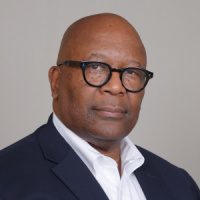
Bobby Holland leads the Freight Data Solutions team at U.S. Bank where he focuses in analytics and data-related product management for the freight industry. Bobby has more than 36 years of broad-based data processing, software engineering and consulting experience. He has leadership in multiple industries including insurance, large-scale billing, customer care services and banking. At the bank, Bobby leads efforts to produce the U.S. Bank Freight Payment Index. The often-cited Index is a barometer for freight shipping trends on both the national and regional level. The index source data is based on actual freight payment transactions from across the country. The pioneer in electronic freight payment, U.S. Bank Freight Payment processes more than $46 billion in freight payments annually for corporate and federal government clients. Connect with Bobby on LinkedIn.

Eric Olson is an experienced transportation professional currently serving as Sales Support Operations Director at TQL. Eric and his team are focused on value-added services in Sustainability, Fraud & Theft Prevention and Innovation.
His well-rounded business perspective and operation expertise allows Eric and his team to design operations and technology around the customer’s needs, protecting their freight while it’s on the road along with the environment and our shared communities. and his team specializes in value-added services for Total Quality Logistics’ largest customers and strengthens corporate relationships.
Eric joined TQL in 2006 and has held a variety of management roles in Accounting, Sales and Operations, including Full Truckload Pricing and Customer Relationship Management Operations.
He has a Bachelor of Arts in Communications from the University of Dayton. Connect with Eric on LinkedIn.
